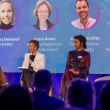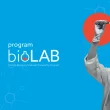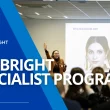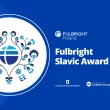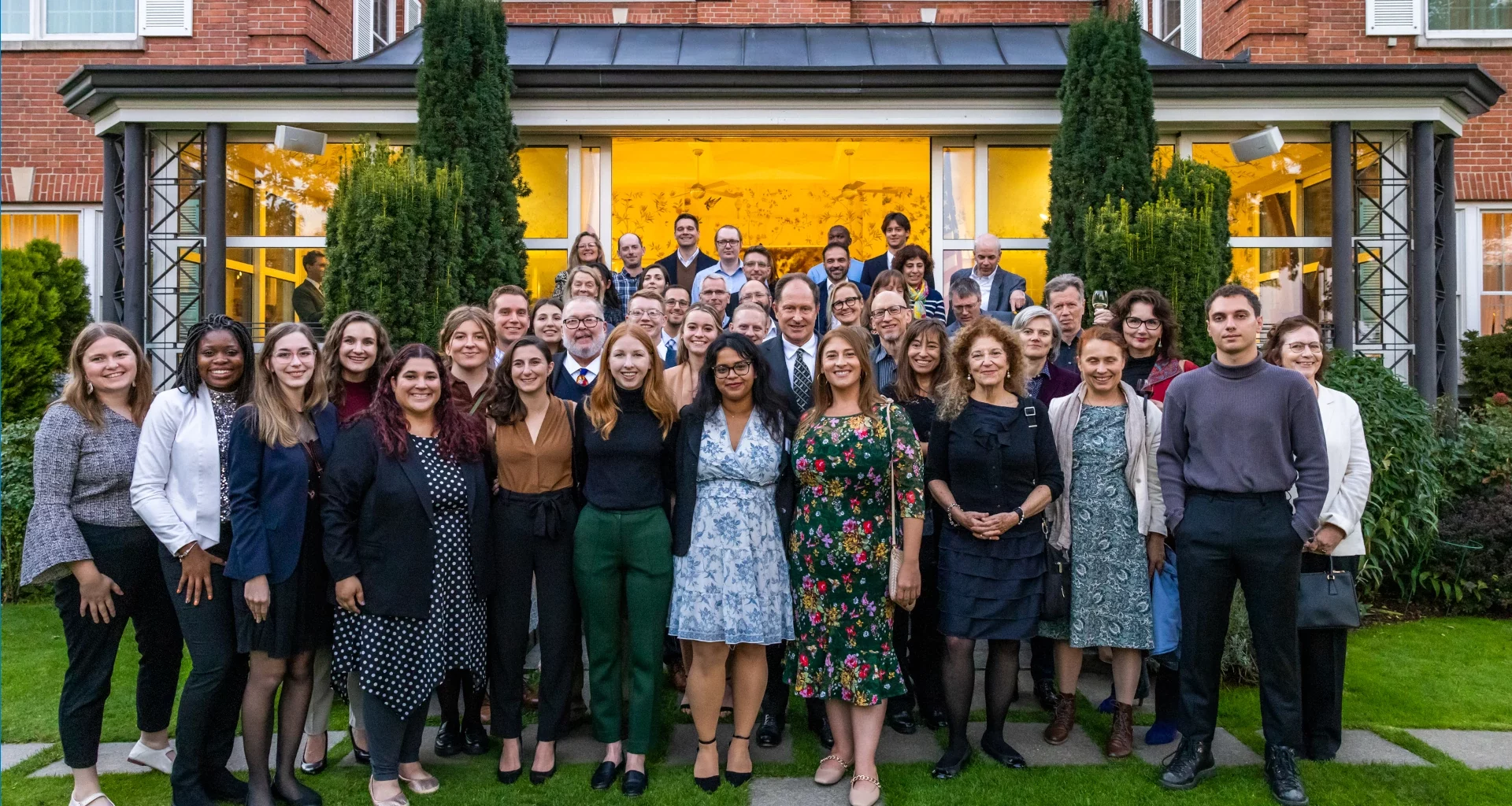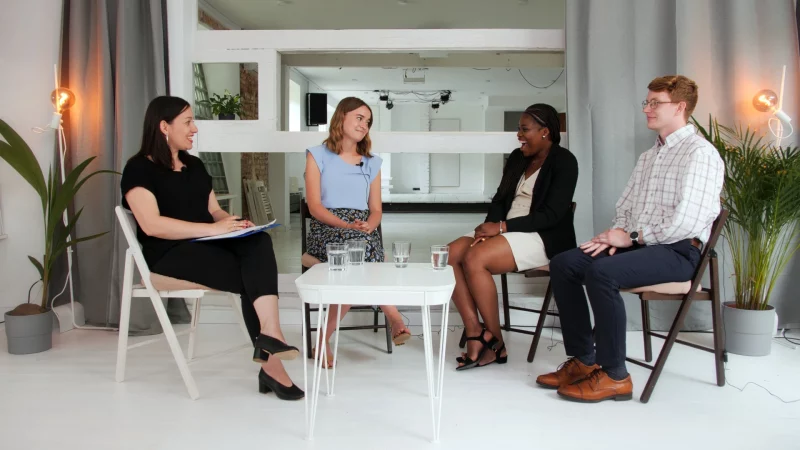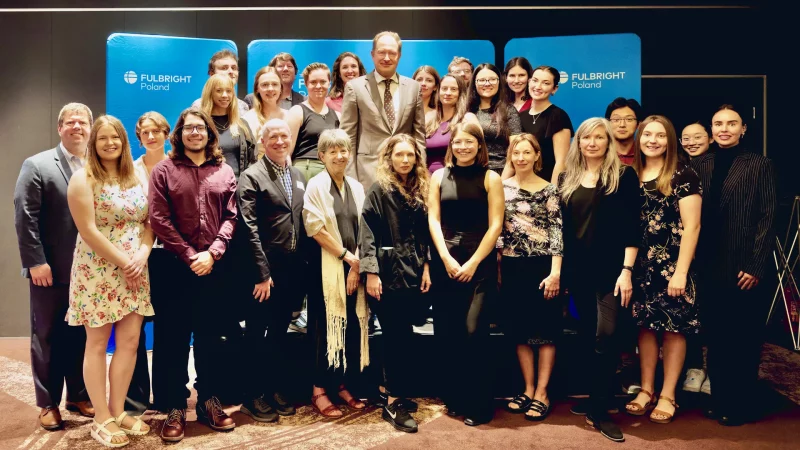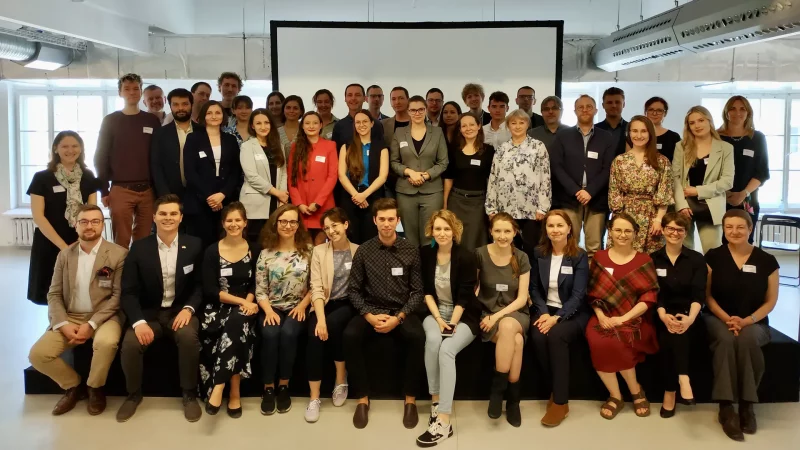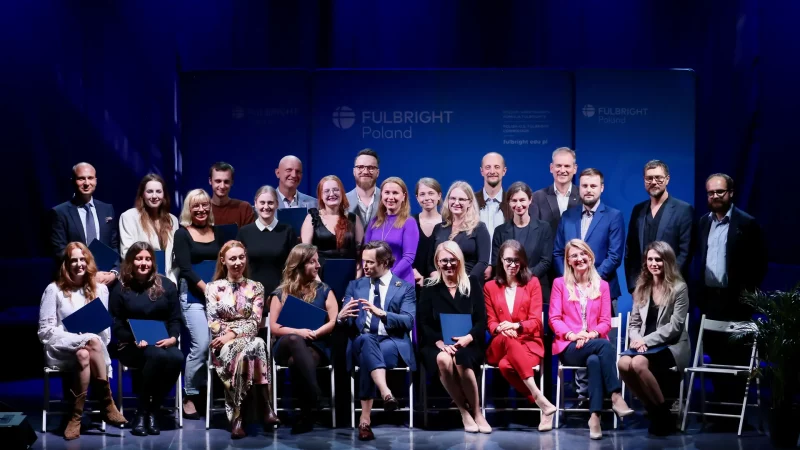
Basic information about grantees is also available in a convenient spreadsheet. Click the button below to access it via Google docs.
Numbers include renewals (grants renewed from previous academic year) as well as potential grant resignations. Numbers for the Fulbright Specialist Award will be updated in the Spring to include projects conducted in the second semester.
5
Specialists
13
English Teaching Assistants
11
Student Researchers
21
US Scholars
Grantees’ profiles
Meet Americans who received prestigious Fulbright grants to Poland for the 2022-23 academic year! Tap or click on the photo to display more information. You can also filter the profiles by the program using buttons below.
-
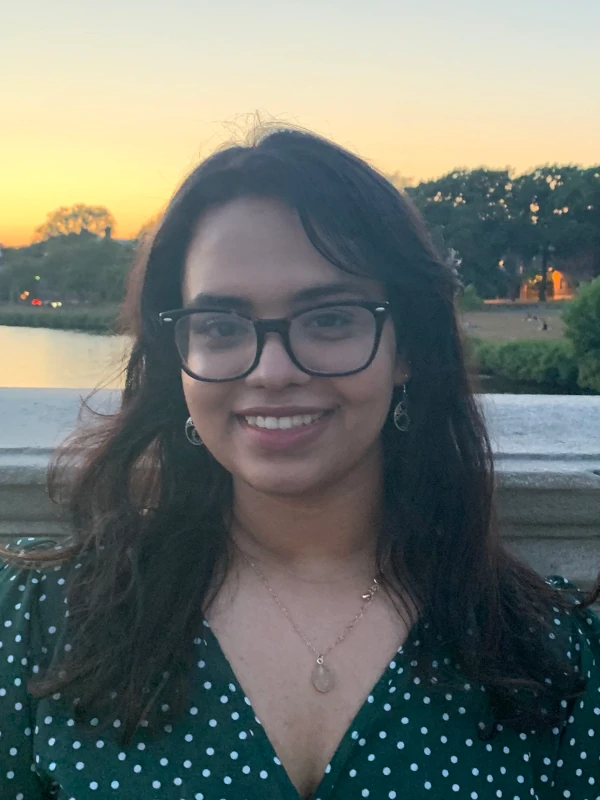
Faria Afreen ETA
-
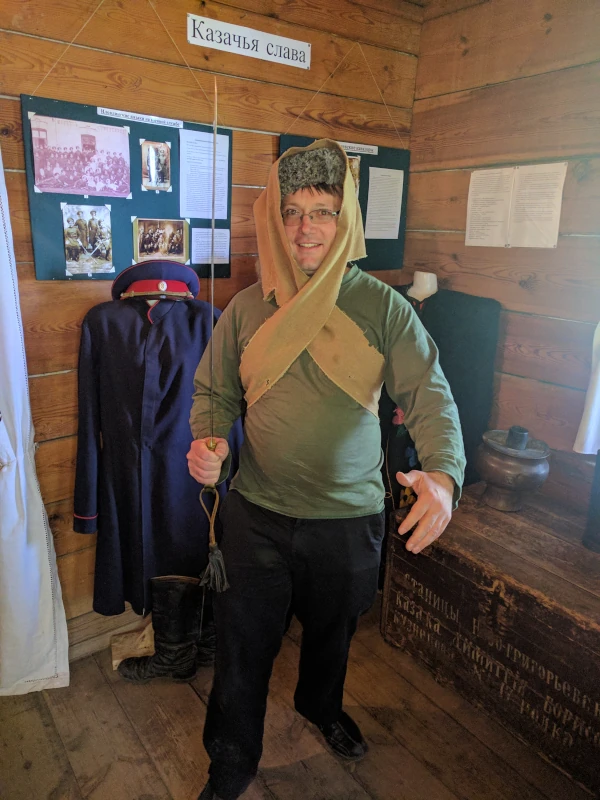
Richard Arnold Scholar
-
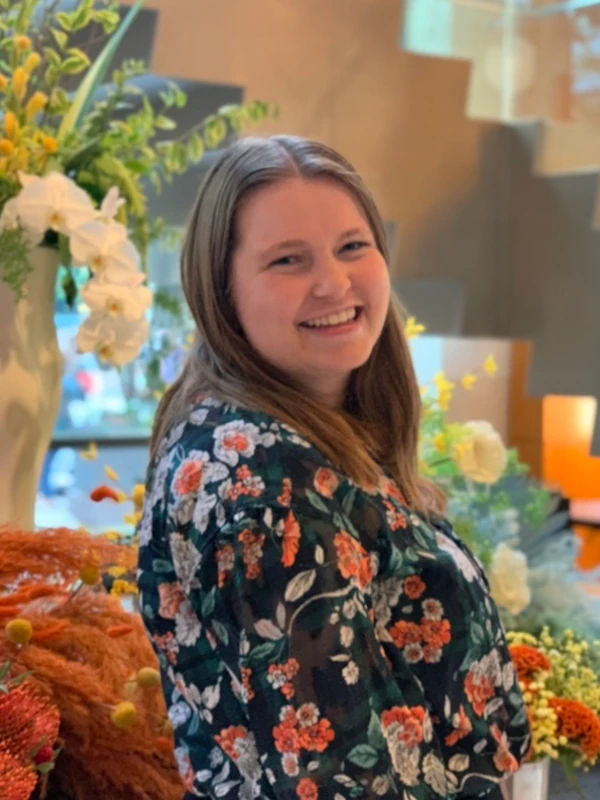
Molly Astarita ETA
-
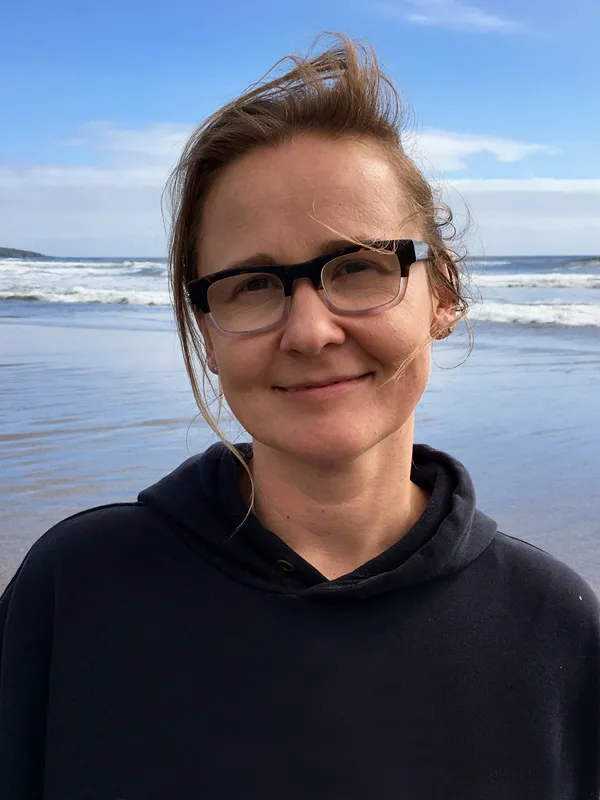
Paulina Berczynski Student Researcher
-
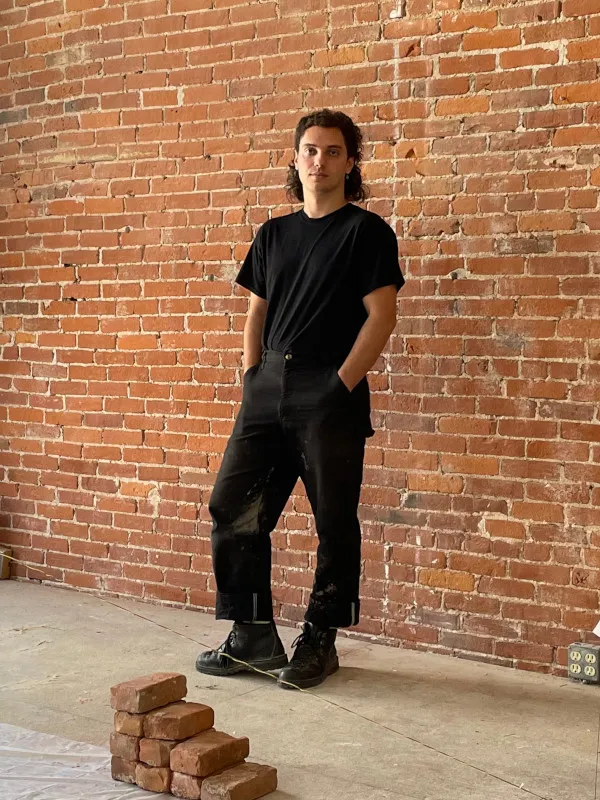
Gabriel Bielawski Student Researcher
-
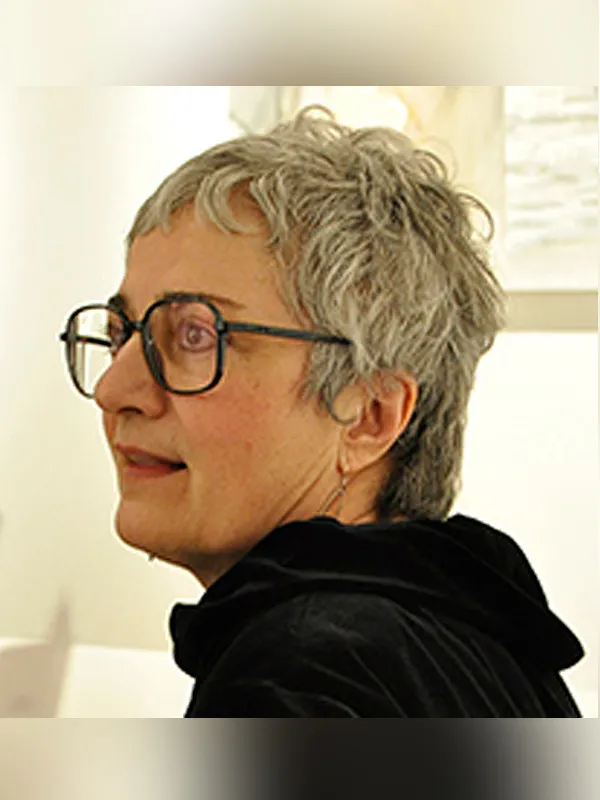
Lydia Bodnar-Balahutrak Scholar
-
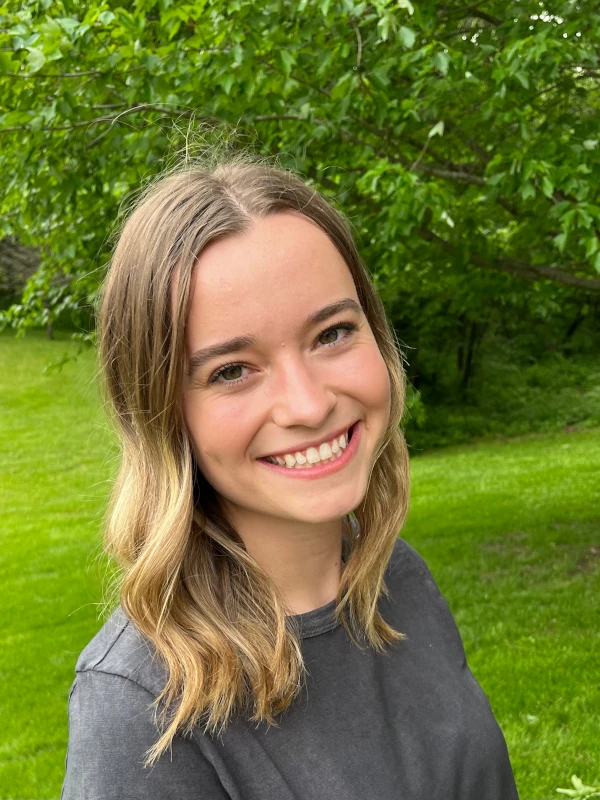
Sarah Brady ETA
-

Daniel Breslow ETA
-
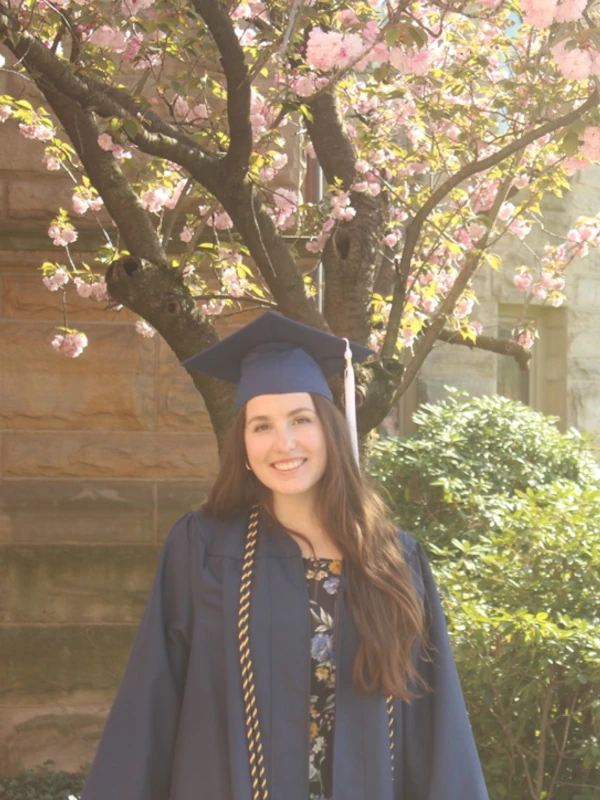
Valerie Browne ETA
-
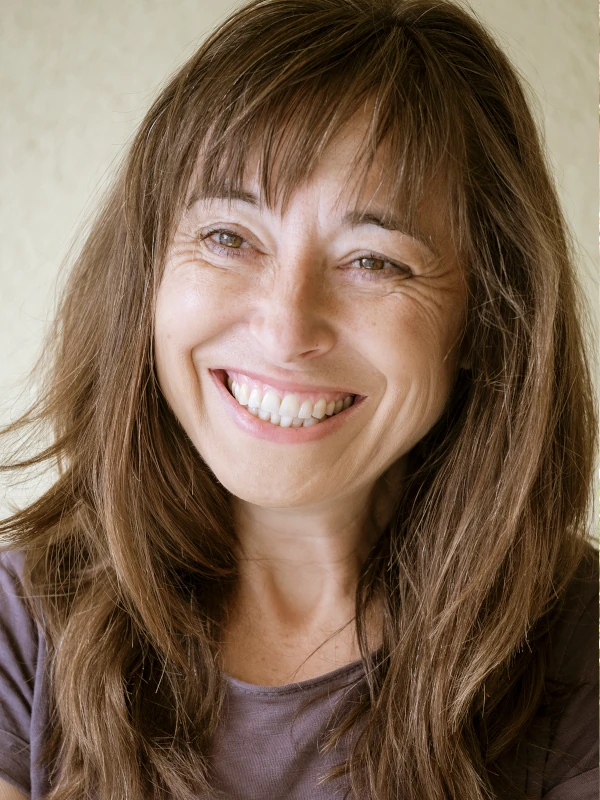
Gabriela Bulisova Scholar
-

Mathew Ciesla Student Researcher
-
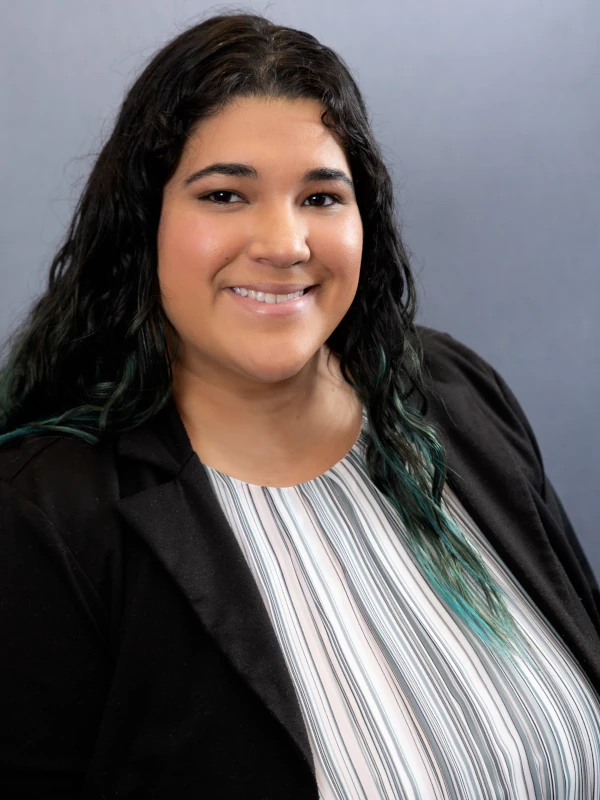
Alexandra Cintrón Jiménez ETA
-
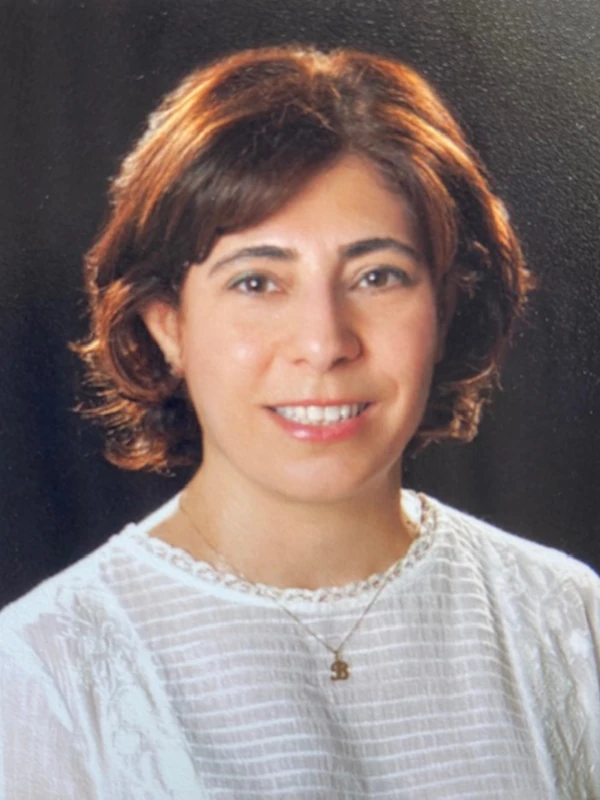
Betul Czerkawski Scholar
-
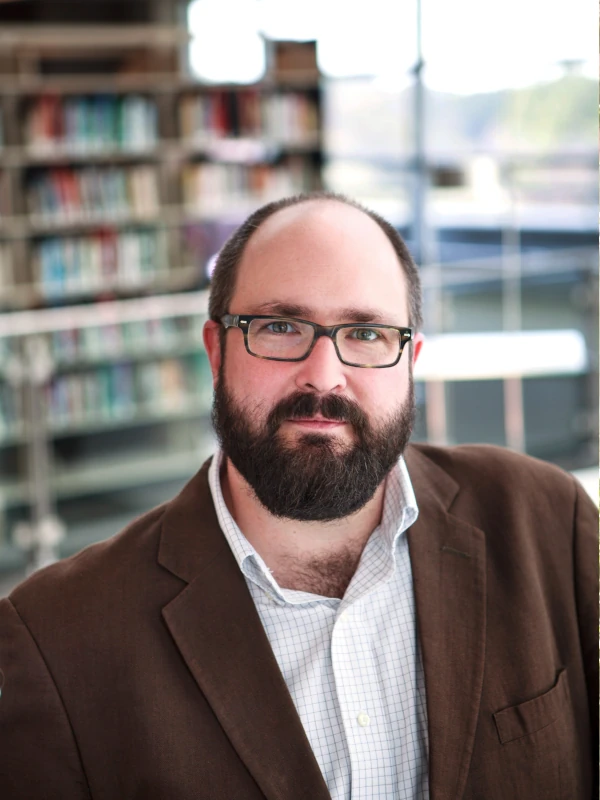
Gregory Domber Scholar
-
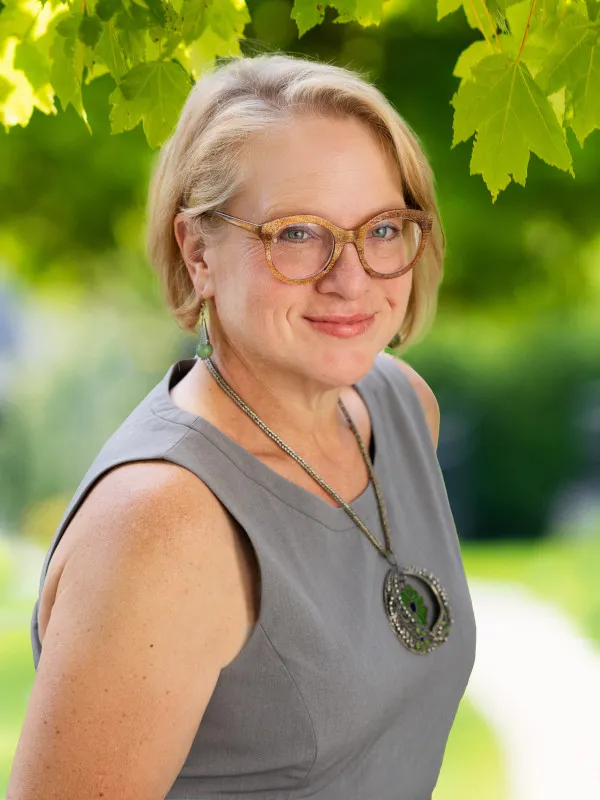
Elizabeth Dunn Scholar
-
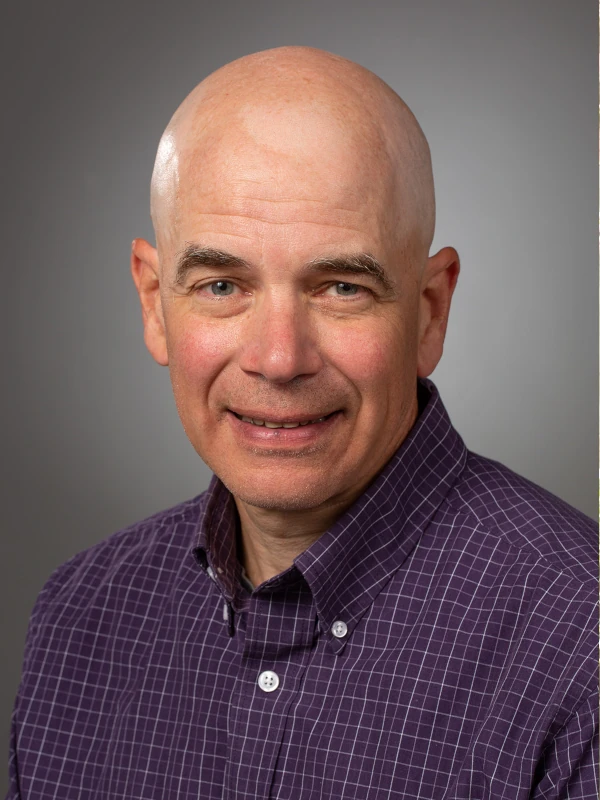
Andy Felt Scholar
-
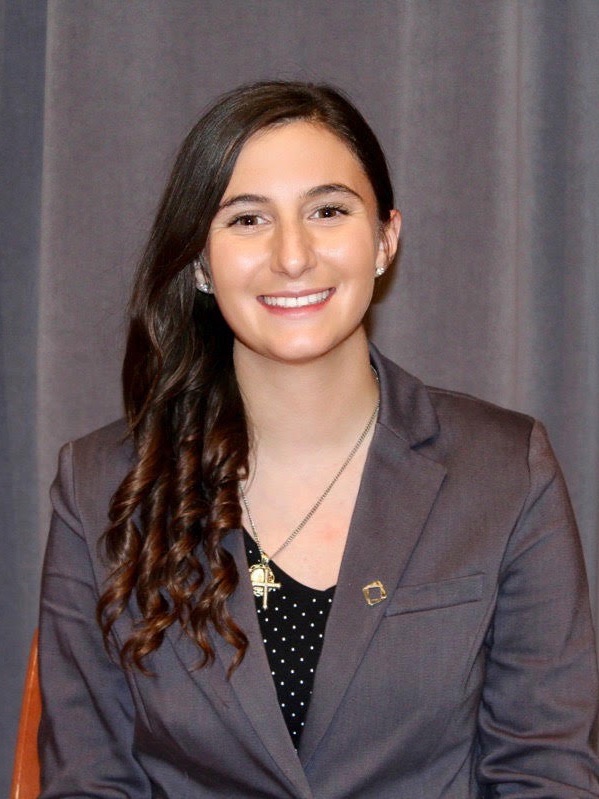
Madalyn Fernbach ETA
-
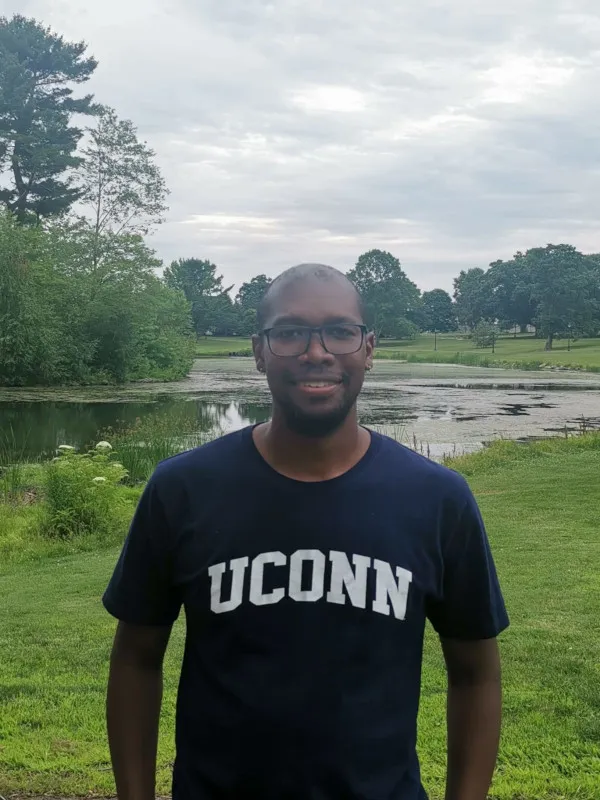
Bryan Greene Student Researcher
-

Paulina Grzybowicz Student Researcher
-
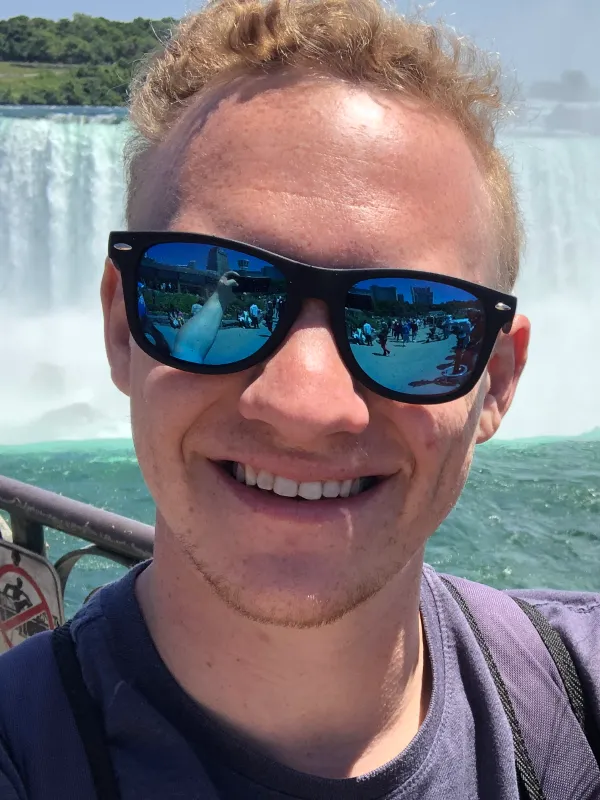
Josiah Grzywacz Student Researcher
-
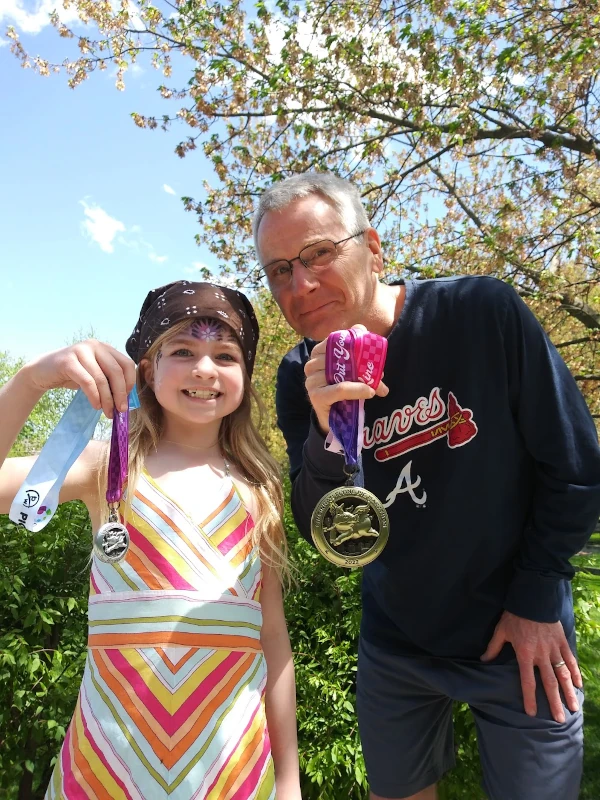
Benjamin Hamilton Scholar
-
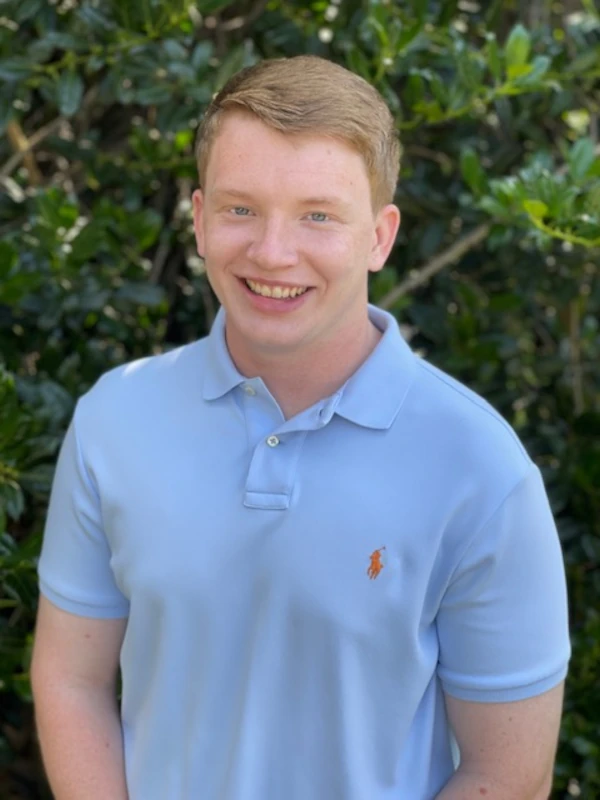
Alex Holmes ETA
-
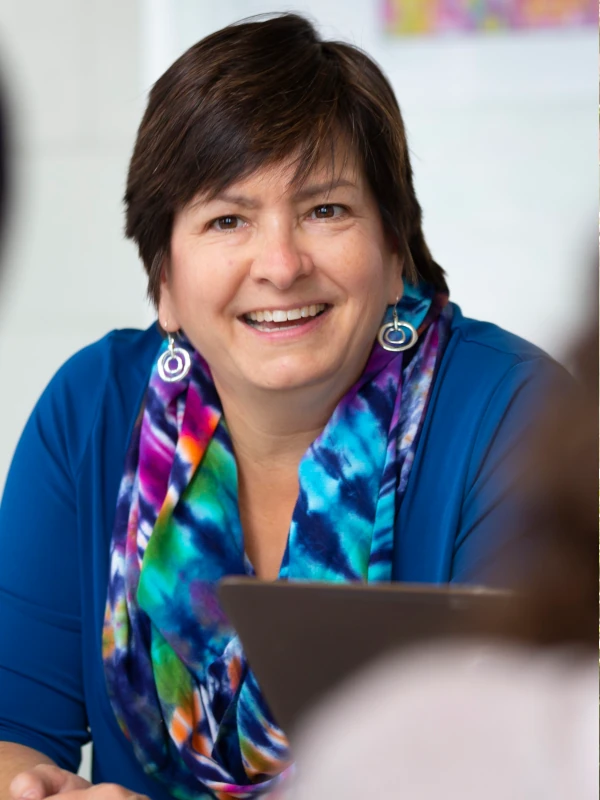
Cynthia Hood Scholar
-
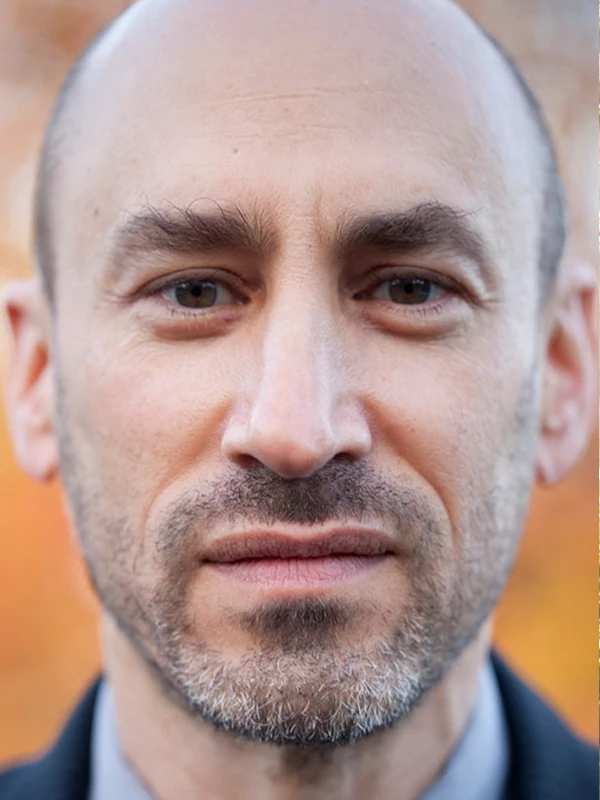
Mark Isaac Scholar
-
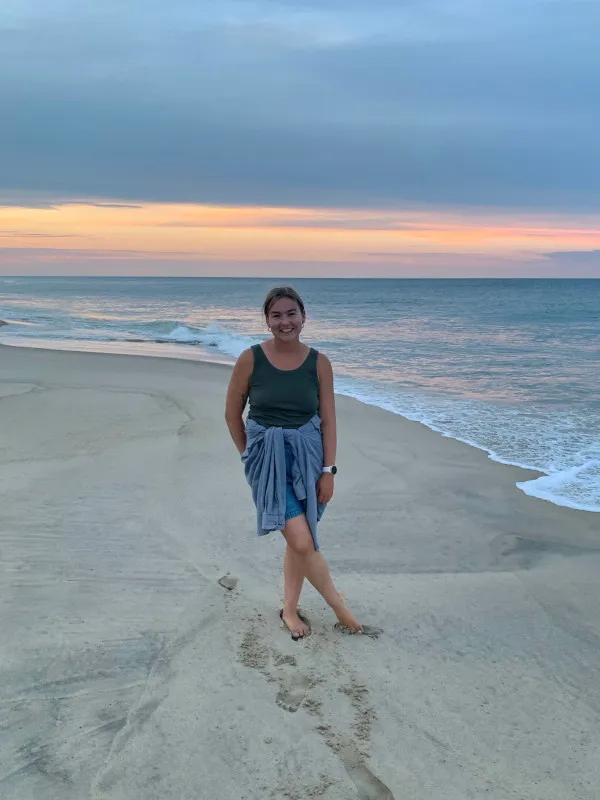
Rachel Jankowski Student Researcher
-
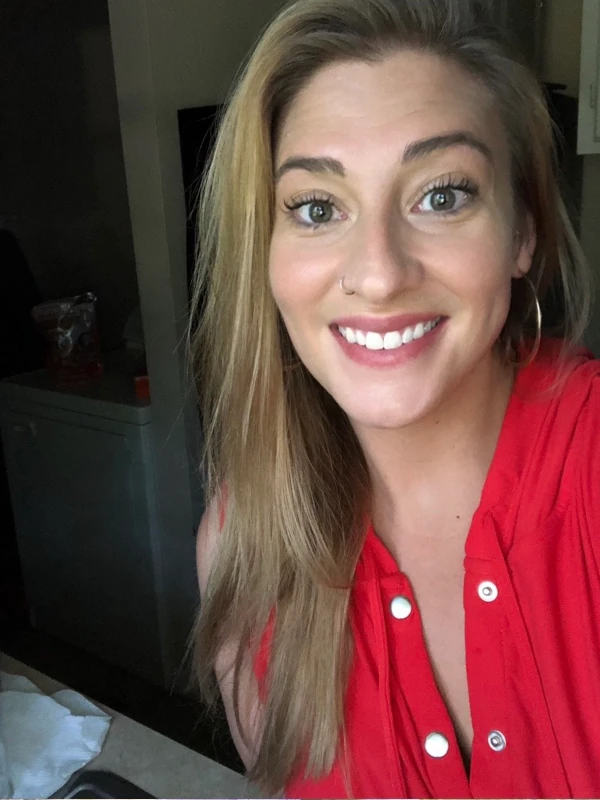
Julie Johnson ETA
-
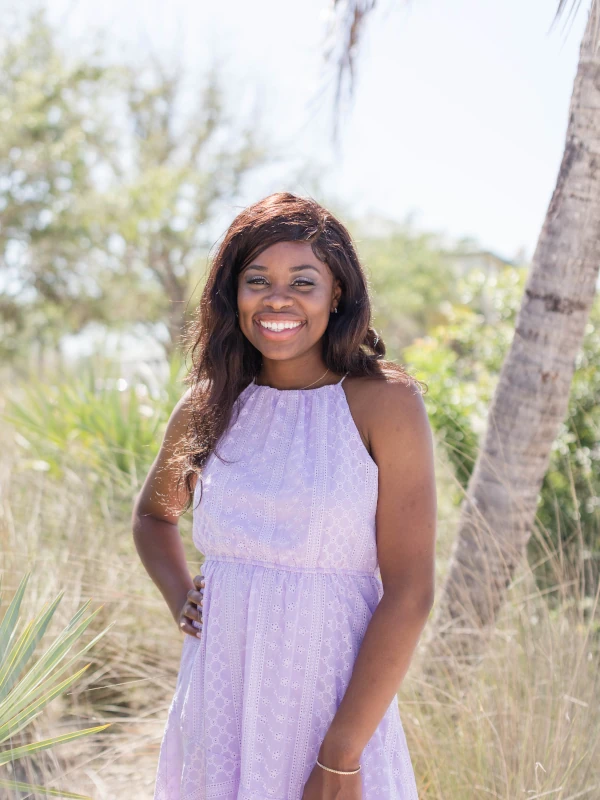
Kaelyn Julmeus ETA
-

Meghan Ludke ETA
-
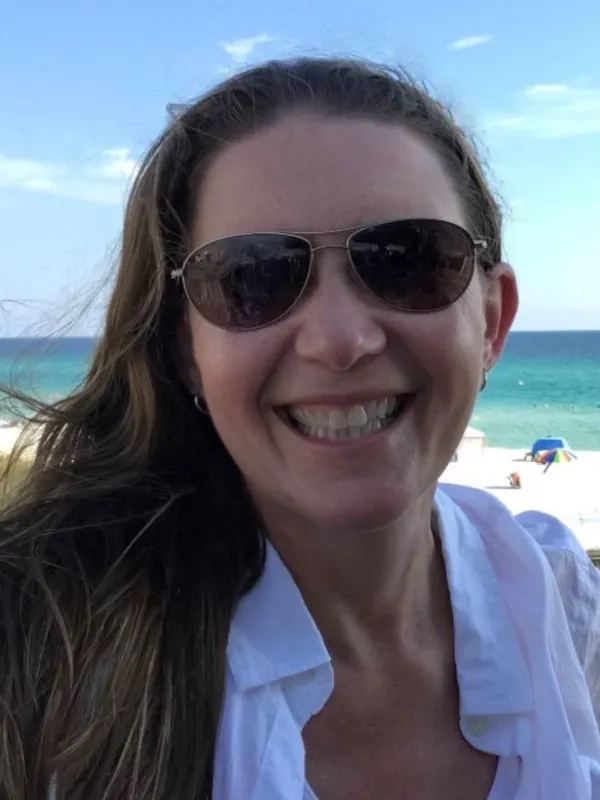
Kimberly McFall Scholar
-
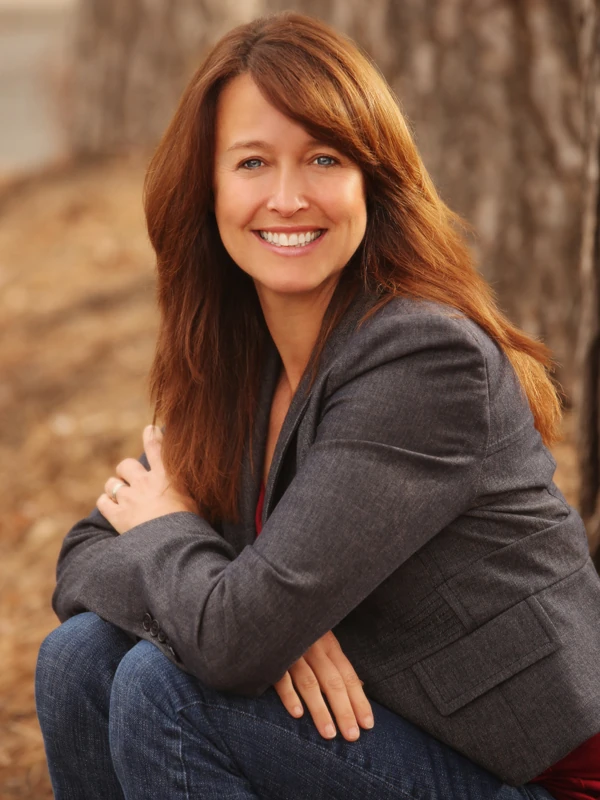
Patrice McMahon Scholar
-
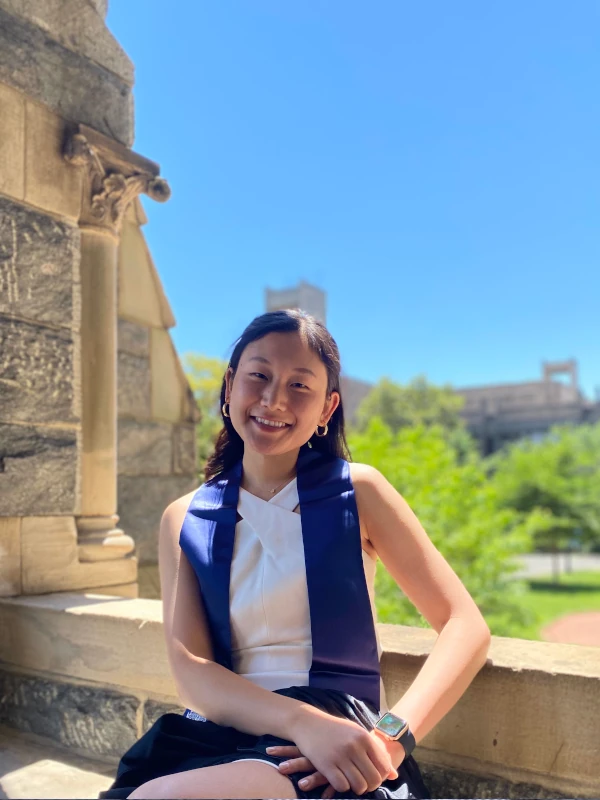
Mary Mei ETA
-
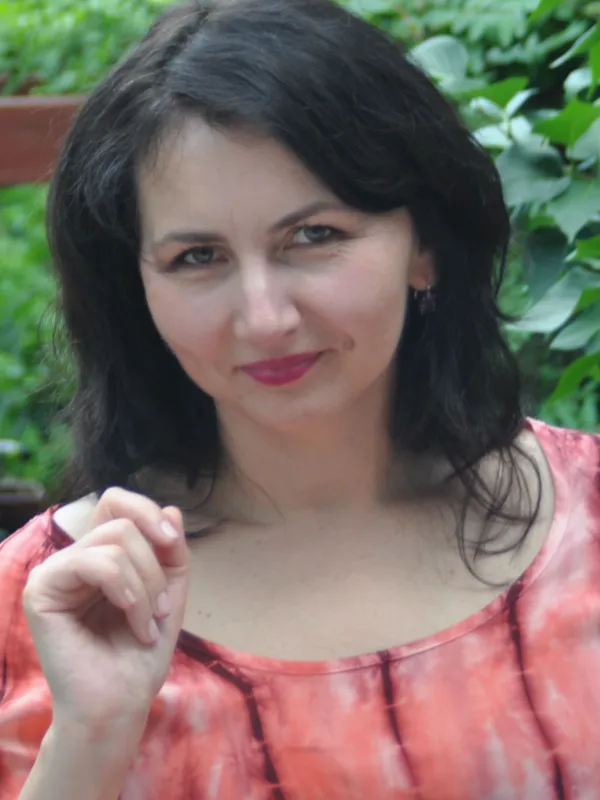
Joanna Nizynska Scholar
-
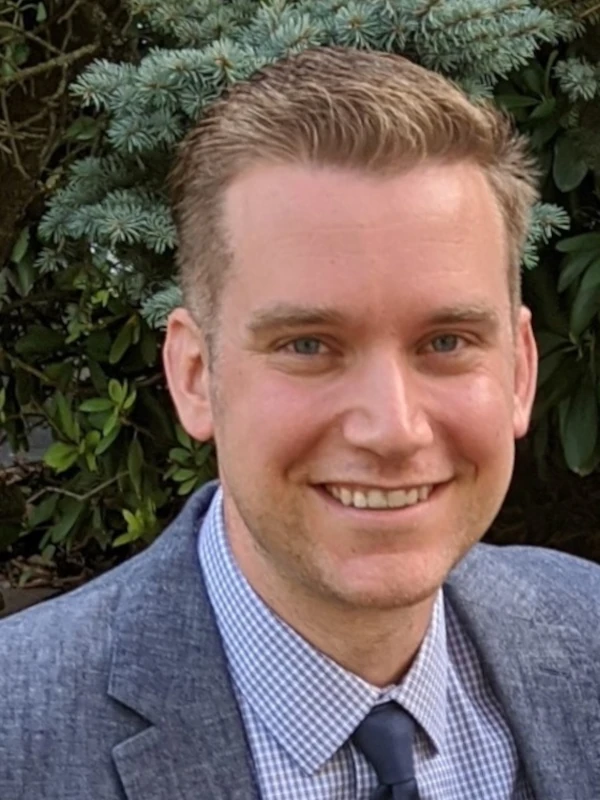
Gregory Parisi Student Researcher
-
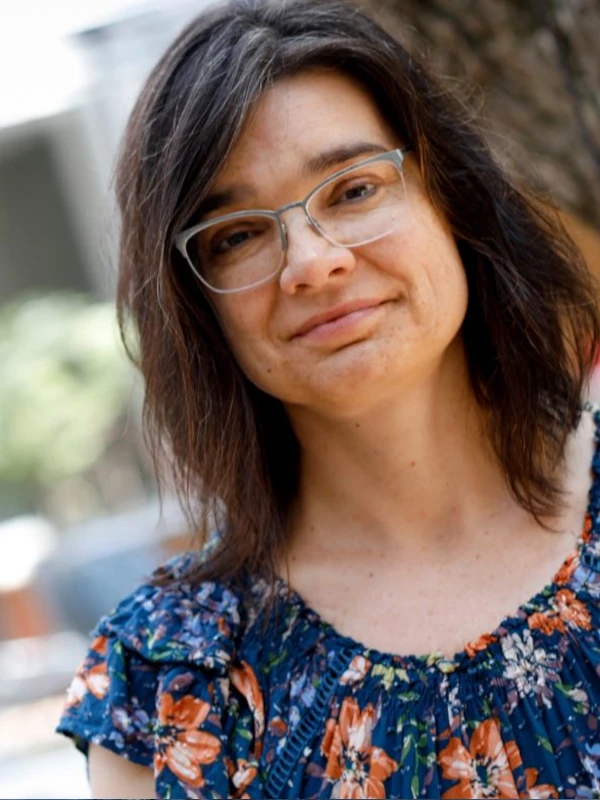
Trena Paulus Scholar
-

Ellen Pearlman Scholar
-
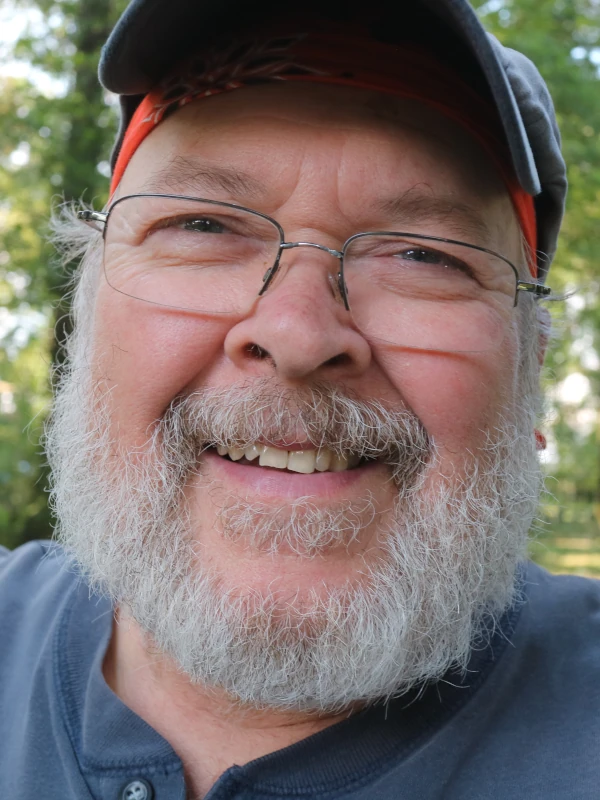
Steven Reece Scholar
-
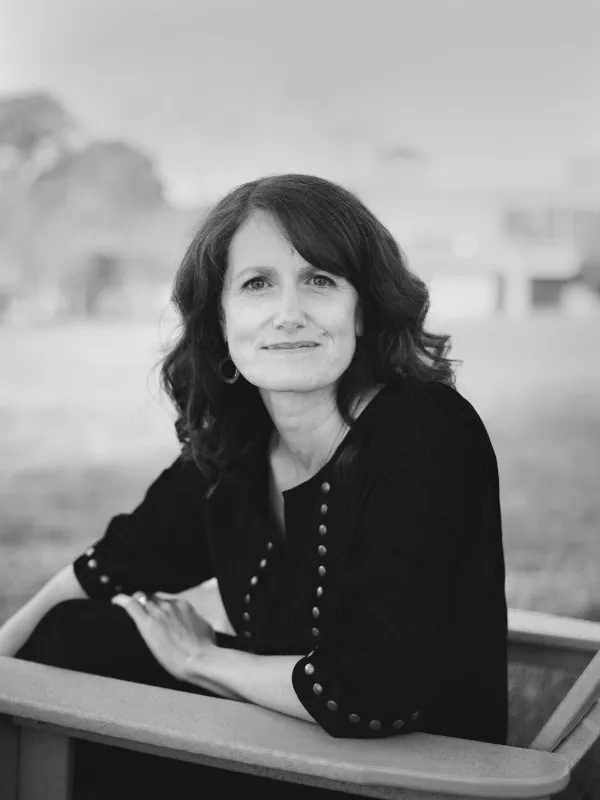
Mira Rosenthal Scholar
-
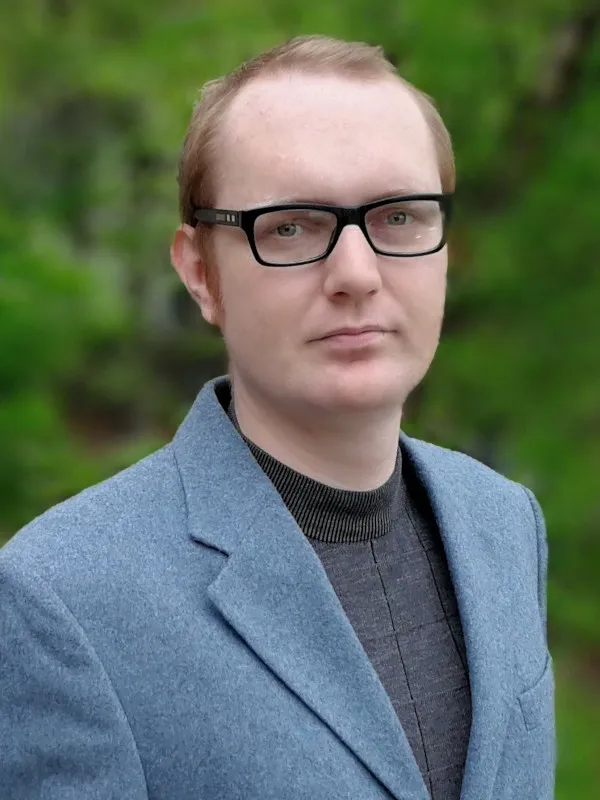
Max Rosochinsky Scholar
-

David Sacko Scholar
-
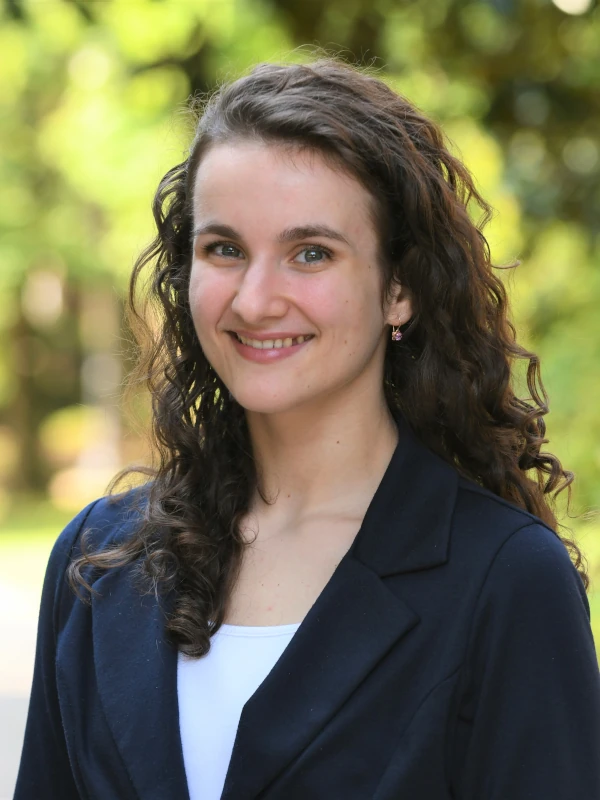
Melanie Staszewski Student Researcher
-
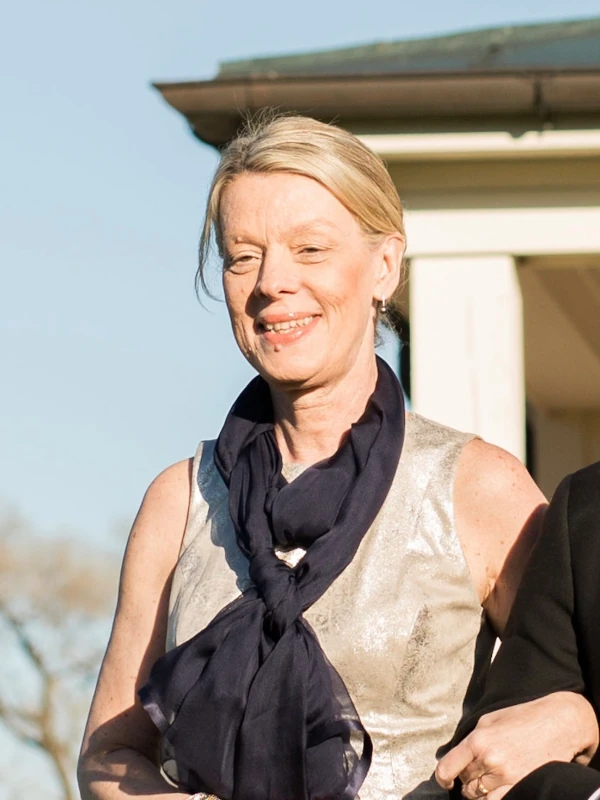
Keely Stauter-Halsted Scholar
-
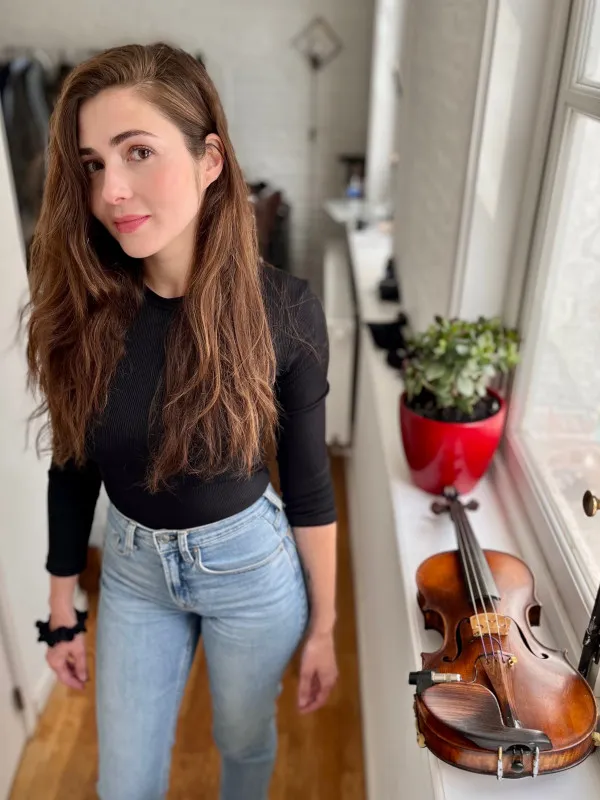
Alexa Torres Skillicorn Student Researcher
-

Faith VanVleet ETA
-
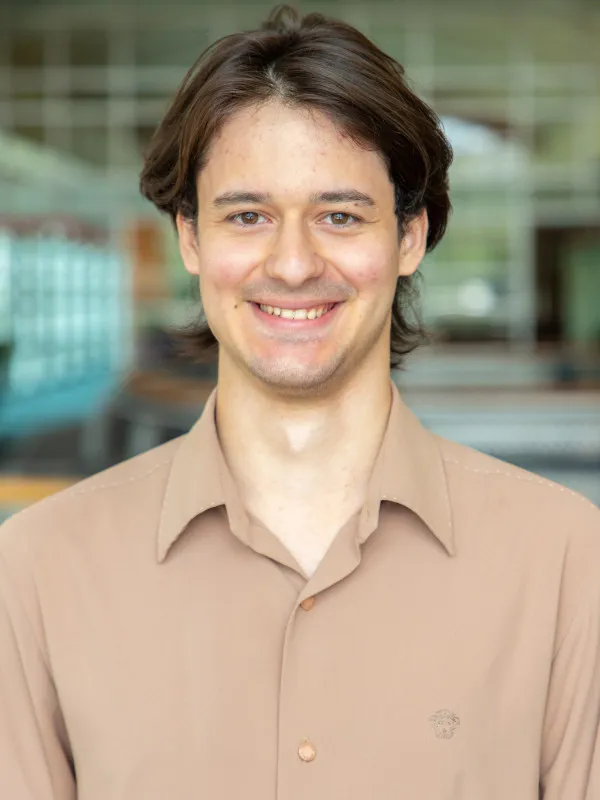
Paul Vaughan Student Researcher
-
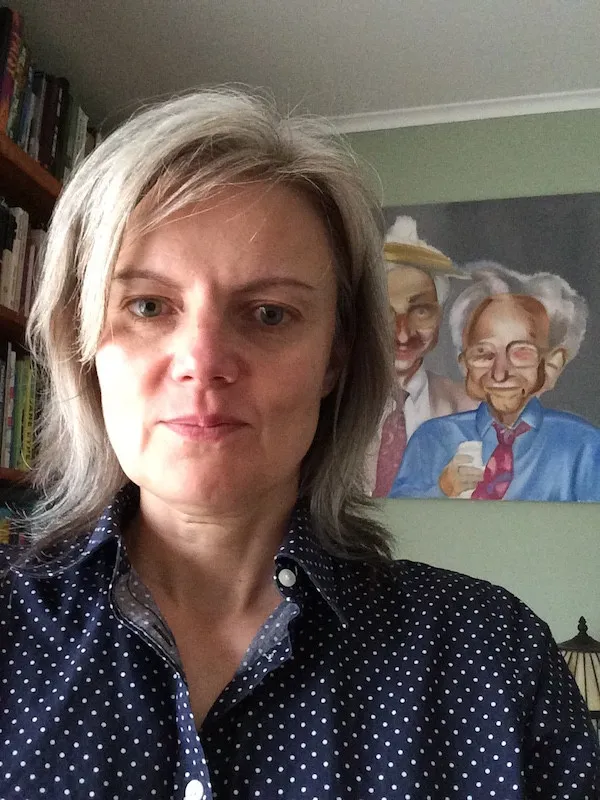
Magdalena Zurawski Scholar

Faria Afreen
ETA

Richard Arnold
Scholar
Who I am:
I am an Associate Professor of Political Science at Muskingum University who teaches classes on international relations and comparative politics. My research focuses on the post-Soviet region and I am a member of the PONARS network of scholars.
My Fulbright grant focuses on:
I was originally going to Ukraine but Fulbright very kindly relocated me to Poland due to the war. I am interested in how the Cossack legacy is being used in articulations of both Russian and Ukrainian national identity. I will be working with Ukrainian refugees in Poland and Polish institutions to recover the emphasis on the Cossack identity since independence in 1991 and different ways in which it is expressed.
I decided to apply for a Fulbright grant because:
I have always admired the Fulbright program and I love to travel. Fulbright is an excellent way of being in another country, making connections with other universities, and carrying out research. Now more than ever, it is important for the United States to strengthen the bonds between our peoples and I relish the opportunity to contribute to that.
After completing my Fulbright grant I would like to:
Complete the work on my second monograph and contribute to Polish and American academic studies about the Cossack legacy in Ukraine. I would love to build some kind of exchange between Muskingum University and the University of Wroclaw. I would also relish the opportunity to lead students on faculty-led travel to Eastern Europe.

Molly Astarita
ETA
Who I am:
I have spent most of my life in Iowa where I enjoy going to Farmer’s Markets, attending the Iowa State Fair, camping, playing board games, and spending time with friends. As a student, I spent much of my free time participating in large group and individual speech competitions, Student Council, International Club, and volunteering at a local library and retirement community. After I graduated from Wartburg College with my Bachelor’s degree in International Relations and Spanish, I received a job at Indiana University. I worked at Indiana University for three years as an International Services Representative while additionally completing my Master’s in International and Comparative Education there, before coming back to Iowa where I worked as an International Admissions Counselor. In those roles I provided information on the admissions process and campus services, reviewed applications, and participated in campus activities with students. I am very excited to live in Poland and meet new people!
My Fulbright grant focuses on:
I will be assisting with English lessons and activities in a university. Outside of the classroom, I will be finding opportunities to be involved within the community in Poland.
I decided to apply for a Fulbright grant because:
I wanted the opportunity to live in a new environment to see which types of lessons and activities might be successful for learning and connecting students with their peers. I chose Poland specifically because I recently came across a book that discussed the education system in Poland and how Poland has really excelled in many areas, especially math and science. This sparked interest in learning more about students’ experiences in primary and secondary schools and how it may have influenced Polish student’s tertiary education decisions. I additionally wanted to see what Poland is doing at their higher education level to recruit and retain their students. I hope to discuss this with students, faculty and staff in Poland, as well as learn more about their lives outside of the classroom.
After completing my Fulbright grant I would like to:
Work with international student programming and orientation or in teaching English in a higher education setting. I know the experience in the classroom and involvement with students and the community in Poland will provide more clarity for my future career path.

Paulina Berczynski
Student Researcher
Who I am:
I am a Polish-American artist working primarily with textiles and social exchange. My perspective is shaped by a childhood spent moving through different cultures, languages, and socio-economic realities, and by the radical history and present of my adopted home in San Francisco’s Bay Area. Through my work, I hope to foster communication and exchange to bridge the divide between people from diverse cultures and communities.
My Fulbright grant focuses on:
My Fulbright grant focuses on radical textile production by female artists in socialist Poland from the period of the 1970s and 80s. My research will focus on these artists’ re-engagement with folk art and craft traditions as personal and cultural identity markers under Socialism within the historical and aesthetic context of the Soviet occupation. In addition to traditional academic research, I will also be incorporating my research into my studio art practice and into several socially-engaged, participatory workshops.
I decided to apply for a Fulbright grant because:
I decided to apply for a Fulbright grant because I know my work will benefit immeasurably from the immersion in Polish culture and art communities as well as the conversation and exchange with Polish practitioners, professionals and faculty in textiles and related fields.
After completing my Fulbright grant I would like to:
After completing my grant I intend to continue my research on radical textile production from the perspective of art, craft, identity, and resistance by people from different cultural and socio-economic backgrounds. I plan to pursue a PhD in Art History focusing on radical textiles, and to publish my research both online and in book form. My research and creative experimentation in Poland will enrich and inform my studio work and larger art practice.

Gabriel Bielawski
Student Researcher
Who I am:
I am a sculptor and video artist. I work in computer animation, wood, leather, steel, and glass. I recreate parts of my great uncle’s and father’s sculptures, and combine them with my own to create historical amalgamations. My artworks are interviews with people who I have never met and souvenirs from places I have never been to.
My Fulbright grant focuses on:
I will investigate the Polish folk tradition of “Lucky Jew[s]” making, the practice of carving wooden figures of Jews as good luck charms, as it relates to the carvings my great uncle produced while he and his family were hiding in the Polish countryside during World War II. I will use this study to produce my own sculptures exploring these crafts as parallel forms of cultural memory making that demonstrate the intricate history of the Holocaust in Poland, and the ongoing reckoning of Jews and Poles with that history in the Węgrów region.
I decided to apply for a Fulbright grant because:
As a person now two generations removed from the events of World War II, and from a life in Poland, I find myself in a position unique from that of my father or my grandparents. Unlike them I have neither memory of Poland, because I was born in the United States, nor memory of my ancestors who lived there, because they died before I was born. I can perceive my own history only through the cultural products of others. I hope that my time in Poland as a Fulbright grantee will, through research and collaboration, enrich my relationship with the land my family is from, and allow me to express my own history from my own experience.
After completing my Fulbright grant I would like to:
After completing my Fulbright grant in Poland I would like to pursue a graduate degree in sculpture and anthropology while continuing to pursue my practice as an artist.

Lydia Bodnar-Balahutrak
Scholar
Who I am:
I am a visual artist and educator with a successful career in exhibiting my work as well as teaching. Born and raised in Cleveland, Ohio, I moved to Houston in 1977, where I continue to live and work. Since receiving a Master of Fine Arts degree in painting from George Washington University, Washington, D.C.. I have participated in national and international cataloged exhibitions, lectured widely, and taught studio classes at the University of Houston and the Glassell School of Art, Museum of Fine Arts, Houston. My work can be found in museums and private collections in the U.S.A., Canada and Europe. In 1991 I was awarded an IREX grant to travel to Ukraine, my ancestral homeland, for the first time. It marked a turning point in my creative work and world view. Since then, I have been exploring narrative and metaphor in my art, combining collage, text, and figuration, and addressing cultural and socio-political issues filtered through my Ukrainian American sensibility. A bilingual monograph about my work was published in 2005. www.LydiaBodnarBalahutrak.com
My Fulbright grant focuses on:
“Contemporary Narrative Art in Ukraine: a Ukrainian/American Perspective”, was conceived as the first phase of a collaborative study of socio-political art created by contemporary Ukrainian artists. The second phase will involve the publication of a multilingual book documenting my findings. Due to the war in Ukraine, the Fulbright U.S. Scholar Program has been suspended within Ukraine. My grant activities will be carried out in Poland, where I will be able to travel and engage directly with artists from Ukraine, and virtually with people and institutions inside Ukraine. In response to the changed circumstances, I have expanded the scope of my project to include Polish Ukrainian artists as well as refugee Ukrainian artists currently living in Poland. My host institution is the University of Arts in Poznan, Poland.
I decided to apply for a Fulbright grant because:
Since 1991, I felt the newly independent Ukraine was experiencing a cultural awakening and a reclamation of a long-suppressed history. Artists in post-Soviet Ukraine were creating bold new narratives and dealing with globally shared issues. I applied for a Fulbright grant to engage my profession of artist and educator and to draw on my Ukrainian American background, enabling me to closely examine the social/political/cultural artmaking of Ukrainian artists. A Fulbright grant will facilitate travel and meetings with the artists and provide meaningful opportunities to consider their work from their respective frames of reference.
After completing my Fulbright grant I would like to:
Back home in Houston, I will undertake the publication of the book, work to develop a series of lectures based on the material gathered in Poland and Ukraine, and edit my videos for future public showings. With text written in Ukrainian, English, and Polish, the book will be a useful resource for Ukraine and Poland, as well as the English-speaking world. I will also work toward finding sponsorship for possible art exhibitions for the artists featured in the book.

Sarah Brady
ETA
Who I am:
My name is Sarah Brady, a recent graduate of the University of Nebraska-Lincoln with degrees in Microbiology and Music Performance. Born and raised in Des Moines, Iowa, I came to the University of Nebraska for my undergraduate education because of the opportunity to pursue two disciplines I am passionate about: music and science. My instrument of emphasis is the harp, and I’ve been playing for more than 10 years. I have had the opportunity to perform with university and regional orchestras during my time at Nebraska. I have also had the privilege of participating in teaching and mentoring opportunities for students of many ages during my time at Nebraska, which further fostered my appreciation for teaching, specifically with subjects of science. I am eager to pursue these passions with a Fulbright grant serving as an English Teaching Assistant!
My Fulbright grant focuses on:
My Fulbright Grant focuses on English language teaching at the university level. In addition to teaching, I hope to integrate into my host community with engagement projects and opportunities centered around involvement in the arts.
I decided to apply for a Fulbright grant because:
I was initially drawn to Poland because of the STEM-based focus of their Fulbright ETA program. I have not been abroad before, and I was eager to integrate into a new culture and gain a global awareness that I haven’t previously been able to experience. I chose to apply for a Fulbright grant because I was excited about the opportunity to be able to do this through teaching.
After completing my Fulbright grant I would like to:
After completing my Fulbright grant I plan to pursue higher level graduate study in a science field. I plan to continue my involvements in music while furthering my education, and I hope to work towards a career involving everyday teaching and learning to continue to develop as a teacher and lifelong learner.

Daniel Breslow
ETA
Who I am:
I completed a BSc from Georgetown University in Washington, D.C., with coursework in International Politics; Russian; and Eurasian, Russian, and East European Studies (ERES). My ERES capstone research shed new light on the life and literary works of Soviet Jewish dramatist M. Daniel (Abram Mendelevich Meerovich, 1900-1940). As an undergraduate, I interned for a member of the U.S. House of Representatives and for the U.S. Department of State’s Office of Eastern European Affairs (Ukraine, Belarus, Moldova). I believe in the value of strong bilateral relations between the United States and the countries of Central and Eastern Europe, and the Fulbright Program’s mission to deepen cross-cultural understanding. In my free time, I enjoy reading, playing racket sports, and spending time with my golden retriever.
My Fulbright grant focuses on:
I will serve as an English Teaching Assistant (ETA) within the Faculty of Economics & Finance and the Faculty of Philology at the University of Białystok. I am excited to return to the city from which my great-grandparents emigrated in the early 20th century. Outside of the classroom, I hope to become involved in local efforts at Jewish heritage preservation in Podlachia.
I decided to apply for a Fulbright grant because:
Serving as a Fulbright ETA will allow me to spend an extended period in the region that has been the basis of my undergraduate studies. I am enthusiastic about engaging in dialogue with my students and the wider host community. In addition, having tailored my coursework toward professional licensure as a secondary Teacher of Social Studies, I look forward to gaining further practical teaching experience.
After completing my Fulbright grant I would like to:
Immediately upon my return from Poland, I am interested in a career in government, including in support of programs like Fulbright and others administered by the State Department. My long-term goal is to return to the U.S. public school system. I hope to emulate those teachers who first sparked my interest in intercultural relations and social sciences writ large.

Valerie Browne
ETA
Who I am:
I am a recently graduated student hailing from Martinsburg, West Virginia. I majored in English and Russian Studies and minored in Political Science at West Virginia University. As one could probably guess from my majors, I greatly enjoy reading and writing. One of my proudest accomplishments is getting my poetry published in my university’s undergraduate literary magazine, “Calliope”. Perhaps a not so apparent fact is that I love being outdoors as well – hiking, going on long runs, collecting flowers and leaves to press, and sitting outside in a beautiful location are some of my favorite pastimes. I’m excited to explore the picturesque cityscapes and hiking paths that Poland has to offer. Although I recently graduated, my studies are far from being finished. I am spending this summer in Kyrgyzstan to intensively study Russian (and a bit of Kyrgyz) with the U.S. Department of State’s Critical Language Scholarship.
My Fulbright grant focuses on:
My Fulbright grant focuses on teaching English to university students for whom English is a foreign language. Parallel to my teaching as an ETA, I also plan to do comparative literary research, analyzing the similarities and differences between the literature of Appalachia (my region in the U. S.) and the literature of the Carpathian Mountains.
I decided to apply for a Fulbright grant because:
I chose to apply for a Fulbright grant because I am passionate about cultural, linguistic, and literary exchange. As much as I love Poland, it chose me in a way, since I initially applied to a Fulbright grant in Ukraine. Although the war has put an end to those plans, I am honored to make Krakow my new home and to serve my Polish host community at the Pedagogical University of Krakow. As an ETA in Poland I will have the opportunity to fulfill the spirit of the Fulbright Ukraine grant I originally applied to, as I will also be working with displaced Ukrainians during my time there.
After completing my Fulbright grant I would like to:
I would like to get a master’s degree in Russian and East European Studies. My dream is to continue to further cultural exchange between East-European countries and the US, whether that be via translation of contemporary Slavic literature, teaching Slavic languages and cultures, or through diplomacy work as a cultural affairs foreign service officer for the US Department of State.

Gabriela Bulisova
Scholar
Who I am:
My name is Gabriela Bulisova and I’m an artist and multimedia storyteller who creates intimate projects that bridge the gap between fine art and documentary practices. My in-depth work on the climate crisis, incarceration, diversity, and memory is fed by a passion to engender meaningful policy changes.
My awards include two Fulbright grants, the Sondheim Prize, and Moving Walls. My artwork, often accomplished in collaboration with my husband, Mark Isaac, has been exhibited in the U.S. and around the world. Recent exhibitions include: Prescient Surfaces, Billings, MT; A Tree for the Forest, Pafos, Cyprus; The Ripple Effect, Irkutsk, Russia; God’s River, documentary film screened in Ukraine and Canada; “Where the Rivers Come Together,” exhibited in 13 cities in Ukraine; and Prisons in the Age of Mass Incarceration, Eastern State Penitentiary Museum, Philadelphia, PA. Our photographs, and video have been published by The Daily Beast, Politico.eu, Smithsonian; National Geographic Proof, ORF, and Narratively.
I taught photojournalism at the Corcoran School of the Arts in Washington, DC. I received a MFA in Photography and Digital Imaging from the Maryland Institute College of Art in Baltimore, Maryland. I am a member of Women Photojournalists of Washington, Women Photograph and Atlantika Collective.
My Fulbright grant focuses on:
In alliance with the Academy of Fine Arts in Warsaw, I will create a photographic project focused on the Holocaust atrocities in Poland that relied primarily on mass shootings to rapidly exterminate Jews and Roma in or near their home towns, also known as “the Holocaust by Bullets.” My project will use World War II-era equipment, innovative treatment of archival materials, and video projection to help bring tragic events into public consciousness and encourage remembrance and reconciliation.
I decided to apply for a Fulbright grant because:
Every since I learned about the mass shootings of Jews and Roma in the early years of WWII in Eastern Europe, also known as “the Holocaust by Bullets,” I was determined to create a visual project that would focus on this lesser known part of Holocaust history, which left behind a plethora of mass graves in Poland and other nations, often at unmarked or little memorialized sites. I originally suggested creating the project in Ukraine, but the brutal war, which is resulting in many new mass killing sites, prevented me from going there, and I now hope to draw some parallels between past and present events.
After completing my Fulbright grant I would like to:
After WWII we humans pledged that we would never again allow the atrocities of the Holocaust to repeat. Now, in Ukraine, we are again witnessing atrocities, war crimes and even genocide. Photography is a unique medium that compels us to look and to see both absence and presence. I think it’s urgent and very timely to share my project with a wide audience, and I plan to create a traveling exhibition that will be seen in Poland, the United States, and beyond. I also would like to collaborate with scholars and researchers on print and online publication of the work.

Mathew Ciesla
Student Researcher
Who I am:
I am a graduate student at the University of Alabama where I previously received a Bachelor of Arts in psycholinguistics with a minor in German language. My research focuses on the neural processes involved in second language learning—more specifically, semantic acquisition and integration in adult, second language learners.
My Fulbright grant focuses on:
My Fulbright Research Grant focuses on the neural correlates of early stages in adult second language learning, using EEG and artificial language. Using artificial language allows us to remove many of the confounds that are present with natural language research, including exposure. The goal is to better understand how we learn language as adults, to assist in better second language education and communication disorder therapies.
I decided to apply for a Fulbright grant because:
I decided to apply for the Fulbright Grant because I saw it as a great opportunity to collaborate with others in another country, expand my worldview, and dive into learning another language. Poland is a beautiful country with a rich history in science and I could not think of a better place to spend 10 months doing research.
After completing my Fulbright grant I would like to:
After completion of my Fulbright grant, I will return to the University of Alabama and complete my graduate studies, where I hope to continue in academia.

Alexandra Cintrón Jiménez
ETA
Who I am:
I completed her Bachelor of Arts in ESL Education from the University of Puerto Rico. During my undergraduate studies I volunteered in Costa Rica teaching English to adults and held summer jobs as a counselor and teaching assistant in New York, New Jersey and Boston. After completing my degree, I substituted at a K-12 bilingual school in Guaynabo, Puerto Rico. Before starting my Master’s, I accepted a role with AmeriCorps serving at a middle school in Boston, Massachusetts and interned at The Library of Congress. I recently completed my Master of Arts degree in International Education from George Washington University. During my time in graduate school I worked as a Success Coach supporting undergraduate students and as an Academic Advising Fellow supporting the Computer Science department.
My Fulbright grant focuses on:
As an English Teaching Assistant, I hope to help Adam Mickiewicz University students hone their English skills. As an International Educator while in Poland, I aspire to support international students at the university and assist those who wish to study abroad.
I decided to apply for a Fulbright grant because:
As an undergraduate student, I had the opportunity to participate in a student exchange in Canada and volunteer in Costa Rica. These experiences motivated me to pursue a career in the international education field. However, I felt a lack of professional experience abroad which is why I decided to apply for a Fulbright grant. I decided on Poland as her destination based on personal interests alignment with the country’s profile. Lastly, Fulbright offers a unique opportunity to learn about a new culture and be involved with the community.
After completing my Fulbright grant I would like to:
After completing the Fulbright grant, I plan to obtain a role in higher education as a study abroad / international student advisor. My goal is to help underserved students pursue educational opportunities abroad and support international students in the United States. My long term goal is to have a leadership role in the field of International Education and pursue a Ed.D.

Betul Czerkawski
Scholar
Who I am:
I am a professor of instructional design and technology from the University of Arizona. I am also a faculty member at the Second Language Acquisition and Teaching Program. My research interests include foreign language teaching and design and development of online learning experiences with the use of emerging technologies.
My Fulbright grant focuses on:
teaching a professional development course for the university faculty on the use and integration of XR technologies in the applied linguistics field, and creation of an open education resource (OER) handbook to foster Ukrainian art, history & culture.
I decided to apply for a Fulbright grant because:
In 2017 I was a Fulbright Scholar to Ukraine and that experience completely changed my personal and professional life. Unfortunately due to the current situation in Ukraine, I will be in Poland working with the displaced Ukrainian scholars and students.
After completing my Fulbright grant I would like to:
continue learning about Polish and Ukrainian cultures, and apply my expertise to promote collaborative teaching and research projects between our countries.

Gregory Domber
Scholar
Who I am:
I am a father and husband. I am a scholar of Cold War international history who teaches at California Polytechnic State University in San Luis Obispo. I first visited Poland in 1999 for a conference that brought scholars together with participants in Poland’s revolution of 1989, to interrogate what happened and why. I have been hooked since, traveling regularly to Poland for research including a student Fulbright in 2003-2004. My first book, “Empowering Revolution” (UNC Press), focused on American influences on Poland’s democratic transformation in the 1980s.
My Fulbright grant focuses on:
My current project utilizes traditional qualitative techniques grounded in archival sources and oral history, and combines it with novel data science approaches to study the influences of American exchange programs on Poland’s political development from 1956 to 1989. Specifically, I am mapping the connections between both Communist and Opposition members at Poland’s Round Table negotiations to investigate the potential effects of East-West exchanges on the development of this network of individuals and institutions.
I decided to apply for a Fulbright grant because:
My student Fulbright to Poland was transformative, personally and professionally. I hope to give something back this round by teaching a course on U.S.-East European relations at Jagiellonian University. Given the outsized role Poland is currently playing to support Ukrainian refugees and the Ukrainian nation I believe it is essential to show solidarity with our NATO allies nearest to the current threats. As evidenced by my research project, I am a true believer in the importance of international exchange to promote positive change and maintain essential relationships.
After completing my Fulbright grant I would like to:
I would like to leverage the findings of my research and my “on the ground” experience during this coming year to engage more directly in policy debates about the best ways to support democratic reform movements and to enhance the rule of law, in the face of strengthening authoritarian tendencies across the globe. After returning I also plan to teach a version of the U.S.-East European course at my home university.

Elizabeth Dunn
Scholar
Who I am:
I am a geographer and anthropologist, and I specialize in refugees and other forced migrants. I have worked with internally displaced people in the Republic of Georgia, Afghans arriving in the United States, Syrians in Germany, and most recently, Rohingya and Somali people working in the American meatpacking industry. My work looks at the ways humanitarian aid systems function (or don’t function), and how displaced people learn to live and work in humanitarian conditions. I also study the way important economic systems, including food systems, become reliant on forced migrants as a labor force.
My Fulbright grant focuses on:
My Fulbright will focus on refugees and humanitarianism. At the University of Warsaw, I will be teaching a course on displaced people, food systems, and humanitarian aid. I will also be conducting research on volunteer aid chains in Poland and Ukraine that have aided both Ukrainian refugees and the military.
I decided to apply for a Fulbright grant because:
I have done research in Poland since the early 1990s. I am continually fascinated by the evolving social, cultural, political and economic changes in Poland, and am excited to spend my first long stretch there in more than a decade. When I applied, I had no idea that there would be more than a million refugees in Poland, but I’m very glad I have gotten to see the massive amount of aid that Poles have given Ukrainians, and hope to write a book about it.
After completing my Fulbright grant I would like to:
Just before the end of my Fulbright, I’m going to compete in the Warsaw Half-Ironman Race -1900 meters swimming, 90 km biking, and 21 km running. Then I hope to submit my book manuscript to the publisher, and go home to the brand new Center for Refugee Studies at Indiana University, where I am the director.

Andy Felt
Scholar
Who I am:
My name is Andy Felt and I am a Professor of Mathematical Sciences at the University of Wisconsin-Stevens Point (UWSP), where I teach courses in operations research, mathematics, and computing. I have mentored dozens of undergraduate research projects, mostly in applications of integer linear programming. I am the Director of the UWSP Center for Athletic Scheduling, at which undergraduates use mathematical programming to create schedules for NCAA Division III conferences around the US. I have a B.S. in Chemical Engineering from the University of Wisconsin-Madison, and a Ph.D. in Mathematics from Washington State University. I love hiking, canoeing, eating, music, and role-playing games. I have a wife and two grown sons.
My Fulbright grant focuses on:
Higher education is struggling to keep up with progress in optimization, a field whose usefulness has exploded in the last 20 years. My goal at Gdańsk Tech is to bring the high-powered tools and techniques of optimization to undergraduates of various majors by teaching them how to model applications before (or without) learning the underlying mathematics. I also want to learn as much as I can about higher education in Poland, to collect new strategies and policies to take back to my home institution. Finally, I want to create a two-way connection, so students of each institution might study abroad at the other.
I decided to apply for a Fulbright grant because:
I love to immerse myself in a culture that is new to me. Learning about its history, traditions, rules, and priorities helps me to examine my own more carefully. There is no better way to learn about a people than to live among them for an extended period of time. I have done so in Germany, and wanted the opportunity to do so in a different country. Poland, having been at the center of so much history and culture, was a natural choice.
After completing my Fulbright grant I would like to:
I hope to establish a dual degree program between my home institution and Gdańsk Tech. Students from each institution would benefit both inside and outside the classroom by studying for an extended period at the other school.

Madalyn Fernbach
ETA
Who I am:
I am a 2019 graduate from Stonehill College with a B.S in neuroscience. Before pursuing a Fulbright to Poland in 2021-2022, I worked for two years at Memorial Sloan Kettering Cancer Center in New York City in cancer and cognition research. My professional interests include global health, primary care, and brain injury recovery. In my spare time, I enjoy traveling and meeting new people. During my time in Poland over the past year, I joined two soccer teams and was involved in many volunteer projects in my host city of Łódź and through the US Embassy. The Fulbright Program is unlike any other and I can’t wait to see where this next year will take me.
My Fulbright grant focuses on:
I am returning to Poland for a second Fulbright year to complete an English Teaching Assistantship at the Medical University of Łódź. During the 2021-2022 academic year, I thoroughly enjoyed working with students and faculty at the medical school and am looking forward to returning. As an English Teaching Assistant, I help students develop their English skills in STEM-related content. Outside of the classroom, I will continue to work with American Corners, play soccer on a local team, and organize women in STEM initiatives around my community.
I decided to apply for Fulbright because:
After spending a semester in college exploring European healthcare centers as a part of an academic study abroad experience, I knew that there was nothing more valuable than getting to explore a new culture. I decided to apply for The Fulbright Program because it not only allows scholars to learn about a new culture but also encourages them to become an active part of a community. I feel very fortunate to get to spend a second year with Fulbright Poland, and I look forward to engaging in more opportunities for educational and cultural exchange over the next year.
After completing my Fulbright grant I would like to:
After Fulbright, I would like to pursue an MD/MPH to study internal medicine and international healthcare. A dream of mine is to work for an organization like Doctors Without Borders, The World Health Organization, or the United Nations in order to contribute to solving global health problems.

Bryan Greene
Student Researcher
Who I am:
I’m a native of Columbia, SC, went to college in Ohio (The Ohio State University) and went to grad school the first time around in New Jersey (Rutgers University-Newark). After graduating from Rutgers with a MS in Global Affairs, I worked for the US Department of Homeland Security, US Citizenship and Immigration Services (USCIS) to be precise, in New York City for over a decade before pursuing my doctorate in Sociology at the University of Connecticut (UCONN). While working full-time for USCIS, I obtained graduate degrees from the City University of New York (CUNY) and The New School. My interests for learning about other cultures outside of my own can be traced back to a student exchange trip that I made back in 7th grade to Paris, France and Yaoundé, Cameroon. I have always had interests in comparing policy and social issues in the United States to other places around the world while enrolled in college and graduate school and have continued to research these issues while studying at UCONN. My current research interests heavily focus on transnational approaches to analyzing anti-blackness issues in post-Soviet spaces and answering (well, attempting to answer) the broader question of what it means to be “black” in and outside of the US.
My Fulbright grant focuses on:
Anti-Black racism in Poland and looking at ways to counter it. More broadly, I’m wanting to examine what it means to be “black” in Poland.
I decided to apply for a Fulbright grant because:
The myth of Poland being “isolated” and “removed” from conversations pertaining to the African diaspora needs to be dispelled and expounded upon. Poland’s history and geographic location in Europe make for an understudied but necessary way of analyzing conversations on anti-blackness and ways to counter it. Fulbright gives individuals an unparalleled opportunity to explore such topics while fostering community and understanding with people who are very different from you but share common goals and dreams.
After completing my Fulbright grant I would like to:
Use my research to complete my dissertation in the immediate future. Also, I plan to present my research at various conferences and forums to expand conversations on anti-blackness and ways to counteract it in Europe and more broadly.

Paulina Grzybowicz
Student Researcher
Who I am:
I am a graduate of DePaul University in Chicago, Illinois, where I earned my undergraduate degree in computer science in 2021. My undergraduate thesis explored algorithmic biases in AI models, including how they are formed, their social implications, and attempts being made to mitigate them. I am excited by technological innovation but also passionate about its safe and equitable implementation. I currently work as a software engineer in Chicago, primarily in health technology. In my spare time, I love to read and bike and am an active member of the Polish-American community in Chicago.
My Fulbright grant focuses on:
During my Fulbright grant period, I will be a part of a research team working under Dr. Konrad Maj at the HumanTech Center for Social and Technological Innovation. This research center explores several areas of Human-Computer Interaction (HCI), including Human-Robot Interaction and User Experience Design, with the goal of designing technologies that are accessible, equitable, and safe for humans. I will work to learn how humans perceive and are influenced by various technological tools in order to understand how best to implement them ethically and efficiently.
I decided to apply for a Fulbright grant because:
In order to do ethical and effective work with technology, we must have a strong understanding of its social influence. My research experience during the grant period will bring me a step closer to this goal. Poland is home to incredible tech talent and growth, and the HumanTech center is one of the only research centers of its kind at the intersection between social science and technology. As a first-generation Polish-American, I also look forward to strengthening my personal connection to the country.
After completing my Fulbright grant I would like to:
After completing the grant, I’m interested in pursuing a graduate degree in Human-Computer Interaction. My goal is to empower students and promote learning by working in educational technology.

Josiah Grzywacz
Student Researcher
Who I am:
I recently finished graduate school with a MS in biological oceanography. I’m originally from Wisconsin but I finished high school in Oklahoma and went to undergrad in South Carolina, so I experienced lots of moving. I enjoy being active with activities such as running, rock climbing, and hiking. I love to travel and enjoy reading both fiction and non-fiction books, mainly alternating between fantasy and science fiction. I have 3 younger siblings, two brothers and one sister, the latter of which my family adopted from Poland in 2009.
My Fulbright grant focuses on:
My grant project will focus on aquatic microbiology in freshwater ciliates from a region of Poland. I hope to ultimately give some insight into the mechanisms of microbial-algal symbiosis and how these organisms play a role in the larger freshwater ecosystem.
I decided to apply for a Fulbright grant because:
I applied to Fulbright after being first encouraged by a Russian language teacher I had in undergrad and also my love for traveling and experiencing different cultures. I chose Poland as this is where my family lineage is from as well as where my family adopted my sister from in 2009. I have mainly visited only the major cities of Krakow and Warsaw so I wanted to spend an extended time in Poland and hopefully see more of the country.
After completing my Fulbright grant I would like to:
After completing my Fulbright I’d like to continue my graduate school education and pursue a PhD in the fields of aquatic biology and microbial ecology. I enjoy the research process and therefore would like to eventually work in either academia or in the private sector as a research scientist.

Benjamin Hamilton
Scholar
Who I am:
I am an Associate Professor in the Mechanical and Manufacturing Engineering Department at Miami University in Oxford, Ohio. I primarily teach courses in materials science and engineering, and my research interests lie in the simulation and characterization of material processing methods. Before moving into the world of academia, I worked in the aerospace industry first for Lockheed-Martin and then for a manufacturing facility that produced aluminum extrusions principally for Boeing. Over the last several years, I have enjoyed a research collaboration and partnership with the AGH University of Science and Technology and with the Pedagogical University in Krakόw. These have provided me the opportunity to lead students from Miami on study abroad programs in Poland. My wife, daughter and I love to travel, and we have been to Krakόw many times and love the city and Poland. In addition to traveling, I enjoy running (slowly) and reading. Some of my favorite authors include P. G. Wodehouse and C. S. Lewis.
My Fulbright grant focuses on:
My Fulbright grant focuses on the joining of dissimilar metallic materials through friction stir welding. We will pursue novel characterization methods, such as Positron Annihilation Lifetime Spectroscopy, to study the welds and learn more about the material flow and microstructure associated with the process. Also, we will develop numerical simulations of the process capable of predicting material flow patterns, temperature and residual stress. In addition, I will teach two courses at AGH in the area of materials science and fracture mechanics.
I decided to apply for a Fulbright grant because:
Given the research collaboration that I already enjoy with AGH, the Fulbright grant gives me the opportunity to work more closely with my collaborators for an extended period of time. From this grant period, I hope to establish a formal exchange program between AGH and Miami for both researchers and students. At the same time, my family and I are thrilled with the opportunity to live in Krakόw and steep ourselves in Polish culture.
After completing my Fulbright grant I would like to:
I want the Fulbright program to be a starting point for a strong collaboration and exchange with AGH University. In the future, I want to regularly visit AGH in and bring researchers and students from Miami University with me to study. I also want to see students and researchers from AGH come to Ohio to strengthen the connections between our universities and countries. When the opportunity presents itself, I hope that my family and I can once again spend an extended period in Poland and further enjoy all that the country has to offer.

Alex Holmes
ETA
Who I am:
I am from Greensboro, North Carolina. As an undergraduate at the University of North Carolina at Chapel Hill, I studied advertising and public relations. While in Chapel Hill, I worked at my local YMCA within the organization’s youth development programs. I spent time in various positions in the youth sports, youth afterschool, teenagers club, and summer camp departments. I also interned as a content writer for She Plays, a media outlet that reports on women’s sports. As a content intern, I was responsible for researching, writing, and editing articles that covered the women’s sports landscape. I had the opportunity to interview professional and collegiate athletes. After completing my undergraduate degree, I returned to Greensboro to obtain a master’s degree in Teaching English to Speakers of Other Languages (TESOL). During this program, I completed my student teaching at a school designed for students who have recently arrived in the United States. I enjoy playing basketball and soccer, swimming, traveling, and reading.
My Fulbright grant focuses on:
My Fulbright grant focuses on teaching English to university students in Szczecin. I plan to connect with my host community by joining a sports team and partnering with youth development programs.
I decided to apply for a Fulbright grant because:
I applied for a Fulbright grant because of the opportunity to learn how other countries teach English. I have visited Poland once before and its culture and history have captivated me since elementary school. Additionally, Poland has one of the best educational systems for developing English language learners. I desire to leverage these experiences as a teacher to speakers of other languages when I return to the United States.
After completing my Fulbright grant I would like to:
After completing my Fulbright grant, I would like to return to North Carolina and continue teaching English to students K-12. I would like to write children’s books designed for English language learners. I am also looking forward to being an informal ambassador of Polish culture.

Cynthia Hood
Scholar
Who I am:
My name is Cynthia Steiz Hood and I am a computer science faculty at Illinois Institute of Technology (IIT) where I am also the director of the Wireless Network and Communications and Policy (WiNComP) Research Center. My current research focuses on utilizing Artificial Intelligence(AI)/Machine Learning(ML) techniques to combine quantitative analysis of data with qualitative information to automate understanding of measurements and results. I am currently serving on Representative Lauren Underwood’s (IL-14) Science, Technology & Environment Advisory Council for the 117th Congress. I am passionate about increasing diversity in computing. I have been involved with securing over $6.8 Million of funding for research and diversity efforts. I have published more than 80 papers and served in various capacities on numerous organizational and review committees. I developed and taught a variety of classes at both the undergraduate and graduate levels. I am the recipient of an NSF Career Award and the IIT Julia Beveridge Award. I am a senior member of IEEE and a member of ACM. In my free time I enjoy traveling, genealogy, hiking, reading and playing ice hockey. Me and my husband Dennis have two adult children, Kayleigh and Thomas.
My Fulbright grant focuses on:
My Fulbright grant focuses on (1) how technology can improve resilience in smart cities, and (2) how can we better prepare computing students to work in interdisciplinary environments and consider the broader implications of the software and systems they design? In particular, this project focuses on these questions in the context of the data analytics that make sense of all of the data being collected in smart cities and provide key inputs to both automated and human decision-making.
I decided to apply for a Fulbright grant because:
After many years of welcoming international students to my home university, I wanted to experience being immersed in a different culture myself. I originally applied to Ukraine and was relocated to Poland due to the war. I’m interested in working with Polish and Ukrainian faculty and students to get their technical and cultural perspectives on technology. These cultures have special meaning to me because my paternal great-grandparents immigrated to the US from Poland and Ukraine.
After completing my Fulbright grant I would like to:
I know that the Fulbright will change the way I approach computing research and education. I hope to become more involved in technology policy and continue to collaborate with my colleagues in Poland and Ukraine.

Mark Isaac
Scholar
Who I am:
I am an artist and documentary storyteller who creates intimate projects designed to bridge the gap between fine art and documentary practices. My work includes photography, video, writing, music and installation focused on the climate crisis, mass incarceration, diversity, memory and borderlands. My prior experience working in government and socially conscious nonprofits helps focus my artistic projects on achieving meaningful policy changes. My artwork, often accomplished in collaboration with my wife, Gabriela Bulisova, has been exhibited in the United States, Canada, Russia, Ukraine, Slovakia, Finland, Cyprus and Korea. Our writing, photographs, and videos have also been published by The Daily Beast, Politico.eu, Smithsonian Magazine; National Geographic Proof, ORF, and Narratively. I earned my BA at Columbia University in New York City and an MFA at the Maryland Institute College of Art in Baltimore, MD. I am also a founding member of the Atlantika Collective.
My Fulbright grant focuses on:
I will combine photography, video, music, writing, and installation to explore the urgent ecological threats to Poland’s natural resources associated with rapid climate change. These threats, including extreme weather events, harm to endemic species, sea level rise, reduced water quality, and destructive forest fires, have brought Poland to a critical environmental crossroads. My project will draw inspiration from Polish academics and artists, encourage broad collaboration in combating climate change and other anthropogenic changes, and most importantly, emphasize cutting edge solutions designed to limit climate change, improve environmental protection, and promote a circular, sustainable economy.
I decided to apply for a Fulbright grant because:
My Fulbright project was originally proposed as a study of the impact of climate change on Siberia’s Lake Baikal. However, I now enthusiastically embrace the opportunity to pursue the many impacts of the climate crisis in Poland, with a special focus on Poland’s diverse waterways, including rivers, lakes and the Baltic Sea. Poland will also be a homecoming for me, since my maternal grandparents immigrated to the United States from southeastern Poland.
After completing my Fulbright grant I would like to:
As soon as this project is completed, I’m eager to share results in Poland, the United States, and beyond. My wife, Gabriela Bulisova, and I are highly motivated to continue working on the climate crisis and projects related to remembrance and reconciliation. Joining with other like minded individuals and organizations, we hope to do our small part to promote policy changes that will avoid catastrophic climate change and reduce conflict by encouraging mutual understanding and reconciliation.

Rachel Jankowski
Student Researcher
Who I am:
I am a geologist from Ohio with a devotion to equitable education and learning. I recently received my Bachelor of Arts from Denison University (2022) in Geosciences and Educational Studies. While studying I also worked as a teaching assistant for the Geoscience department and tutored in neighboring communities. I have spent many seasons working for and exploring America’s National Parks, with a special love for Yosemite and Cape Cod. My interest in Earth Science is still growing and evolving but I am eager to deepen my study of marine and coastal geology. I believe that a strong understanding of earth processes enables us humans to make better decisions for our own livelihoods and the wellbeing of our shared environment.
My Fulbright grant focuses on:
My Fulbright grant focuses on coastal morphology of the southern Baltic Sea and sedimentary responses to winter storm events. I will be comparing engineered coasts and nourished beaches to natural coasts and different types of dunes to quantify their resistance to erosion. I am delighted to be working alongside Dr. Joanna Dudzińska Nowak at the Institute of Marine and Environmental Sciences of Szczecin University.
I decided to apply for a Fulbright grant because:
I decided to apply for a Fulbright in Poland because of the country’s natural beauty and the opportunity to explore geology and academia in a new (to me) location and culture.
After completing my Fulbright grant I would like to:
After completing my Fulbright I plan to pursue an advanced degree and teach high school environmental science and field geology courses. It is my ultimate goal to teach at a liberal arts university where I can partner with local schools, students, and research labs to create a curriculum that brings current exploratory field geology into high school classrooms.

Julie Johnson
ETA
Who I am:
My name is Julie Johnson and I am from Philadelphia, Pennsylvania. I received my Bachelor’s degree from the University of Washington where I majored in Near Eastern Languages and Civilizations with a focus on the Arabic language. I then obtained a Master’s in Education with a focus in TESOL at the University of North Florida. While earning my Master’s in Education I worked as a graduate assistant where I supported professors’ research and gained valuable experience. During this time I was able to pursue my own research focusing on art integration into the STEM field (STEAM) and equal access to STEM education for English language learners. Currently, I am completing my second Master’s in Library and Information Science at the University of South Florida. In Philadelphia, I work as a school librarian and ESOL coach. I also work at the public library where I create STEAM and literacy activities for teens. As an educator, I’ve been privileged to work with students from all different backgrounds, ages, and levels of English proficiency. I have worked in K-12 public school and college settings and regularly volunteer to teach English to the refugee population in my community.
My Fulbright grant focuses on:
While in Poland, I will be an English Teaching Assistant. I hope to support students by creating learning opportunities that are authentic and student-centered.
I decided to apply for a Fulbright grant because:
Poland was my first choice when applying for my Fulbright grant because of the rich history and beautiful culture it possesses. Fulbright is a great fit for me because of my love of learning, languages, culture, and travel.
After completing my Fulbright grant I would like to:
After completing my Fulbright grant I would like to continue working at the public library creating programming for English language learners of all ages and backgrounds. I would also like to pursue a Ph.D. in Library and Information Science.

Kaelyn Julmeus
ETA
Who I am:
I recently graduated from Florida Gulf Coast University earning a Bachelors in Biology with Honors. Throughout my time at this University, I was heavily involved in all departments. Working as a peer tutor with the Center for Academic Achievement, Instructional & Teaching Assistant for Physics and Girls in Engineering Math & Science (GEMS), in addition to serving as an University and Scholars Ambassador. For over two years, I have completed breast cancer research focusing on new therapeutics for Triple Negative Breast Cancer. Beyond that, I have served as the President of the Cancer Research Program where we work with our community to provide education, advocacy, and research about cancer. I have been a volunteer with Golisano Children’s Hospital of Southwest Florida for over two years shadowing physicians to learn the clinical aspect of medicine. From these experiences, I see the need for healthcare professionals to teach their patients the scientific process of their diagnosis within their cultural values, which is why I have decided to pursue this Fulbright grant. In my free time, I love to read, workout, and shop.
My Fulbright grant focuses on:
Serving as an English Teaching Assistant to STEM students.
I decided to apply for a Fulbright grant because:
Fulbright allows the opportunity to immerse myself in a culture different and unfamiliar to my own, while also applying my skills to their society. This experience will allow me to enhance my cross-cultural skills to teach STEM concepts. It will expand my knowledge on the importance of STEM education and combine that with the qualities and duties a doctor must have to speak and teach their patients about their body within their cultural values.
After completing my Fulbright grant I would like to:
Complete a post-baccalaureate position at the National Institutes of Health doing cancer research. Afterwards, I plan to attend medical school to pursue a career in surgical oncology.

Meghan Ludke
ETA
Who I am:
I am a recent graduate from the University of Notre Dame with a double major in Science Preprofessional Studies and Psychology and a minor in Science, Technology, and Values. While in college, I worked as a teaching assistant for Organic Chemistry Laboratory and as a tutor for Organic Chemistry and General Chemistry. I also spent two consecutive summers as a youth counselor at the Boys and Girls Club of Lawrence, Massachusetts, and Green River PACT, where I developed and taught lessons to middle and high school students. Throughout my undergraduate years, I explored my interest in healthcare through various experiences. I joined Notre Dame’s chapter of Global Medical Brigades, where our group hosted healthcare clinics in Panamanian villages and I later served on the leadership board. Additionally, I used my emergency medical technician certification to work for Notre Dame’s COVID-19 Response Unit and Midwest Medical. I am excited to combine my passions for science, cultural exchange, and teaching during my Fulbright in Poland.
My Fulbright grant focuses on:
As an English Teaching Assistant, I hope to help students develop their language skills, especially in STEM-related material. Outside of the classroom, I plan to engage with the community by volunteering with a local organization and joining a soccer team.
I decided to apply for a Fulbright grant because:
I applied to Fulbright because it is the perfect way to combine my interests in cultural exchange, teaching, and community engagement. I am confident that being actively involved and engaged in my community will be an incredibly enriching experience.
After completing my Fulbright grant I would like to:
After completing my Fulbright, I plan to attend medical school and specialize in either surgery or obstetrics and gynecology. As a doctor, I hope to frequently volunteer with organizations such as Doctors Without Borders. The cultural knowledge I gain during my Fulbright will undoubtedly help me treat patients both locally and while abroad.

Kimberly McFall
Scholar
Who I am:
My name is Kimberly McFall and I am currently an Associate Professor at Marshall University in West Virginia where I am honored to serve as Director in the Department of Graduate Curriculum & Instruction and the School Library Program Coordinator. Before moving to Marshall University in 2015, I spent 18 years in K-12 classrooms teaching music and school library media in Texas, North Carolina, and Arkansas, which will always be “home.”
I am passionate about exploring ways to keep the curriculum fresh and creating authentic learning opportunities for students of all ages. My teaching philosophy is founded in the belief that the most important part of education is the relationship between the teacher and the student. Before any person will learn—no matter their age—they must feel safe to be vulnerable to inquire, explore and create. As an educator, it is my fundamental belief that serving as a learning facilitator and meeting people where they are then giving them a safe space to explore new knowledge and guiding them to their own workable solutions is how authentic knowledge is discovered.
My Fulbright grant focuses on:
My grant focuses on gathering data from current Polish educators in the K-12 classrooms to determine how they use technology in their spaces, what they wish they would have known technology-wise going into the classroom, and how technology needs and learning have changed following the pandemic. Then, I will work with faculty members at the University of Wroclaw to create volunteer Technology Learning Communities that explore the curriculum of their courses and discover ways to reshape technology-rich learning opportunities in a way that aligns with classroom teachers’ needs based on the data.
I decided to apply for a Fulbright grant because:
Poland was my top choice for the Fulbright grant because I have opportunities to meet and work with colleagues from several universities across the country where scholarship is well respected and encouraged. I am thrilled to be able to spend time deepening relationships and collaborative efforts to forward the field of education and evolve more on both personal and professional levels.
After completing my Fulbright grant I would like to:
Post Fulbright, I plan to continue the work by doing a comparative study about technology integration and pre-service teacher preparation so that there is a better understanding of how to use technology as not a trick, but rather a tool in order to produce educators that are prepared to facilitate meaningful learning experiences for students and colleagues in a technology-rich post-Covid landscape.

Patrice McMahon
Scholar
Who I am:
I am a Professor of International Relations and Director of the University Honors Program at the University of Nebraska-Lincoln. My research focuses on humanitarian affairs, civil society, US Foreign Policy, and peacebuilding.
My Fulbright grant focuses on:
Civil society activism in Central and Eastern Europe.
I decided to apply for a Fulbright grant because:
I love Poland! I studied in Poland as an undergraduate student at The Adam Mickiewicz University; I returned as a Fulbright student, and then have worked with colleagues on research in Krakow and Poznan.
After completing my Fulbright grant I would like to:
Return to administration and continue writing about civil society and humanitarian affairs, and, hopefully, peacebuilding in Ukraine.

Mary Mei
ETA
Who I am:
I am a recent graduate of Georgetown University in Washington DC, where I majored in economics and government. While in college, I served as a microeconomics teaching assistant in the Economics Department and wrote for the Georgetown Voice Magazine. I also volunteered as an ESL tutor at a bilingual elementary school in DC, mentoring and teaching young students. In my undergraduate research career, I focused on studying the relationship between education and political participation in young democracies, specifically for student population groups. Currently, I work in public sector consulting and specialize in financial planning and analysis (FP&A) and process improvement. Most recently, I managed the budget for a State’s COVID-19 Testing program. In my free time, I enjoy cycling, reading, and baking.
My Fulbright grant focuses on:
My Fulbright grant focuses on teaching English at the Koszalin University of Technology. I hope to help facilitate cross-cultural exchange by learning from those in my host community and sharing my perspectives as a young Chinese-American woman.
I decided to apply for a Fulbright grant because:
Education has played an enormous part in my life and in my family’s background. For as long as I can remember, I have enjoyed sharing knowledge with others. I decided to apply for a Fulbright grant, because I want to build on my passion for teaching while exploring a country I am personally and academically interested in.
After completing my Fulbright grant I would like to:
After completing my Fulbright grant, I plan on pursuing graduate studies in the areas of government and public policy. I want to explore the topics of regime change, democratization, and political participation in either a master’s or PhD program.

Joanna Nizynska
Scholar
Who I am:
I am an Associate Professor of Polish Literature and Culture in the Department of Slavic and East European Languages and Cultures at Indiana University. My longstanding interests in trauma, gender, and memory studies are reflected in “The Kingdom of Insignificance: Miron Białoszewski and the Quotidian, the Traumatic, and the Queer” (2013). I also co edited “German-Polish Postmemorial Relations: In Search of a Livable Past” (2012) and “Being Poland: A New History of Polish Literature and Culture since 1918” (2018), an 800+ page interdisciplinary volume with sixty contributions from international scholars written with an English-speaking audience in mind. My new book project investigates contemporary Poland’s cultural memory as pertaining to the history of the Jews.
My Fulbright grant focuses on:
My project “The Polish-Jewish Memory in Postcommunist Poland and the Legacy of Communism Fifty Years after March 1968” illuminates to English speaking audience the conditions of the Polish-Jewish cultural memory in postcommunist Poland and calls for a more nuanced vocabulary for postcommunist developments. I argue that the postcommunist cultural memory has been shaped by the legacy of communist politics of memory (e.g., polonization of the Holocaust) and show how the Polish public became aware of this legacy during the 50th anniversary of the antisemitic campaign of 1968.
I decided to apply for a Fulbright grant because:
I chose Warsaw because my research that focuses on the cultural and historical events that took place in Warsaw cannot be completed without an extended stay there. I need to interview cultural animators of the commemorative events I study and a range of audience members. I also need to access libraries of the University of Warsaw to study some ephemeral materials not available in the US.
After completing my Fulbright grant I would like to:
I would like to see my book published by my dream publisher and reviewed (in splendid terms only) by spectacular scholars!

Gregory Parisi
Student Researcher
Who I am:
I earned my B.S. and M.S. in chemistry and am currently a PhD student in the department of Mechanical, Aerospace, and Nuclear Engineering at Rensselaer Polytechnic Institute, New York. My doctoral research is on wettability switching of interfacial properties for heat transfer applications. I’m passionate about combating the global water crisis and improving world-wide natural water quality. Outside of research, I’m an avid snowboarder, photographer, and runner. In my spare time, I enjoy scuba diving, traveling, and hiking with my dog and my fiancé.
My Fulbright grant focuses on:
At AGH University of Science and Technology I will develop smart bio-degradable electrospun membranes with the dual objective of (1) studying wettability to improve water harvesting systems and (2) decreasing the cooling demands for power-producing devices. The ultimate goal of this research is to make potable water available through fog harvesting by developing electrospun fibers with unique properties.
I decided to apply for a Fulbright grant because:
The Fulbright grant will provide me with the opportunity to collaborate with a team that is passionate about fighting the global water crisis with the highest level of expertise and research equipment. As a child of a Polish immigrant, I hope to explore my Polish heritage and reconnect with relatives. I am also fascinated with the rich history of the country and the homeland of the scientific pioneer Marie Skłodowska-Curie.
After completing my Fulbright grant I would like to:
After completing my research for the Fulbright grant, I plan to continue in the field of academia to further my knowledge on how heat transfer plays a role in the global water shortage. My dream is to inspire students to seek out collaboration to explore globally impactful subjects.

Trena Paulus
Scholar
Who I am:
I am a qualitative research methodologist & technologist, specializing in the analysis of online conversations and use of digital tools and spaces in research design. I am co-author of Doing “Qualitative Research in a Digital World” (Sage, 2022), “Looking for Insight”, “Transformation and Learning in Online Talk” (Routledge, 2019), and “Digital Tools for Qualitative Research” (Sage, 2014). I am a professor at East Tennessee State University (2019-present) and have also worked as a professor at the University of Georgia (2014-2019) and as an assistant and associate professor at the University of Tennessee (2003-2014).
My Fulbright grant focuses on:
I will be working with faculty at Adam Mickiewicz University to design, develop and co-teach a baccalaureate-level course in qualitative research methods for students in language and linguistics. I will provide mentoring and workshops on using qualitative data analysis software and offer a seminar on how to apply qualitative interviewing skills to patient-centered communication in health care settings to improve patient outcomes.
I decided to apply for a Fulbright grant because:
Being able to successfully choose sources of data (i.e. observations, interviews, documents, archives, social media) and methods of analysis (manually or with software) is a critical skill to develop. Often innovation is necessary to answer unique and timely questions in a fast-changing world. These skills are increasingly important as countries strive to better understand what their citizens are experiencing. Through qualitative inquiry we can raise awareness of our own cultural ways of being and how we understand other cultures.
Both AMU and my home institution are currently expanding their work in the medical humanities. Pedagogy that emphasizes patient-centered communication skills is an integral part of the curriculum. A cross-cultural dialogue around possibilities in this area will ultimately improve patient care and outcomes. Through this exchange we can learn how these skills are taught in our respective contexts.
After completing my Fulbright grant I would like to:
Spending time in Poland will help me develop a relationship between AMU and my home institution. Two outcomes are possible: an early assurance Honors program in collaboration with Quillen Medical School that will draw on the medical humanities and Poland as the location of an upcoming Global Year Abroad. Our university currently has a minor in culture and health which will serve as the foundation for the medical humanities focus. The Honors program will include an international component (such as study abroad). The Global Year Abroad program provides the campus, curriculum, and community with a sense of place and interconnectedness through a year-long series of events and course enhancements that focus on a single country. It involves one academic year of campus and community activities revolving around the target country as well as one year of prior planning that takes place through a year-long “Global Year Faculty Seminar”. The exploration of and interaction with the country occurs in multiple ways, such as enhanced courses that feature country-specific content, research projects, education abroad offerings, visiting scholars, new partnerships, and community events. My time at AMU will allow me to contribute to the development of this program.

Ellen Pearlman
Scholar
Who I am:
I am a New York based new media artist, curator, critic and educator, and a Fulbright Scholar at the Department of Mathematics at the University of Warsaw, Poland. I have also been a Fulbright Specialist in New Media, Art and Technology in Latvia and at the Polish Japanese Academy of Computer Information in Warsaw; a Research Fellow at MIT; and a Senior Research Assistant Professor at RISEBA University in Riga, Latvia. I have been a Zero1 American Arts Incubator/U.S. State Department Artist to Kyiv, Ukraine, and a Vertigo STARTS Laureate (EU). I received my doctorate from the School of Creative Media, Hong Kong City University where her PhD thesis received Highest Global Honors from Leonardo LABS Abstracts. I am also the founder and Director of ThoughtWorks Arts, a global technology research lab. I created “Noor: A Brainwave Opera” and “AIBO – An Emotionally Intelligent Artificial Intelligence Brainwave Opera”. Currently, I am working on “Language Is Leaving Me, An Opera Of The Skin” that explores AI, Computer Vision, and epigenetic trauma of cultures of diaspora.
My Fulbright grant focuses on:
I will set up a rapid prototyping colab to investigate the relationship between artificial intelligence, natural language processing, database design, and how AI interprets intergenerational human memories through database selections of visual information focusing on, but not limited to epigenetic, or inherited traumatic memories. Participants will engage with new and powerful models of artificial intelligence, natural language processing, and computer vision called GPT-3 and its related models (e.g., DALL-E, VQGan and CLIP). This new family of AI models is so powerful that it transforms speech into images.
I decided to apply for a Fulbright grant because:
Epigenetic memory is trauma that changes the rDNA genetic structure of an individual and is structurally inherited. It is relevant to me personally as I investigate my own epigenetic memories as a third generation agnostic American Jew whose family emigrated to the United States in 1906 after the massive pogroms of 1905 in the Pale of Lithuania. This geographic area includes, but is not restricted to Poland, as Polish borders have changed a number of times within the past century. I never knew about these massive pogroms until two years ago when I was researching my ethnic background. This fact was kept buried so deeply within my family that my grandparents and parents all took it with them to their graves. Even now these unspoken memories and suppressed traumas form complex behavioral patterns in myself that I am still unlocking. In my work thus far using artificial intelligence I know it is incapable of understanding nuances like epigenetic memory. Though currently a European country, Poland was a product of the former Soviet Union, and before that its borders were sliced and diced among competing nation states, including its occupation during the great wars.
After completing my Fulbright grant I would like to:
My research findings will manifest as academic papers, seminars and new workshops. I am committed to working with the next generation of students and young professionals who will work with and develop emerging intelligent systems of AI, engaging them through cross disciplinary methodologies combining art, science, and technology in intensive colabs, or team collaborations. This approach allows contemplation and discovery about the implications of the methods and technologies they are developing and implementing, a perspective that can be referred to as “algorithmic justice”.

Steven Reece
Scholar
Who I am:
I am the founder and President of The Matzevah Foundation, a nonprofit organization incorporated in Georgia in 2010. I lead members and volunteers of the Foundation to educate the public about the Shoah (the Holocaust) and to restore Jewish cemeteries in Poland. Its purpose is to remember and honor Poland’s Jewish heritage, restore what was lost due to the Shoah, and reconcile Jews and Gentiles through a joint mitzvah or good deed.
I am an advisor for the European Jewish Cemeteries Advisory Network (EJCAN), which is a network “of more than 30 international experts representing a range of professional skills and expertise related to Jewish cemeteries which can be contacted for advice on a number of issues.” I am also certified to teach about the Holocaust through Yad Vashem and Tel Aviv University.
I am married with four children and one granddaughter. I worked as a photojournalist for ten years before entering religious and charitable work. I am an ordained Baptist minister and am a graduate of Baylor University and Southwestern Baptist Theological Seminary.
I received my Doctor of Philosophy in Leadership at Andrews University in 2020.
My Fulbright grant focuses on:
During my Fulbright grant, I will be teaching in the Institute of History at the University of Szczecin and conducting research. My project focuses on investigating the cross-cultural and diplomatic model of cultural stewardship to address the long-standing issues resulting from the Shoah in preserving Poland’s Jewish material and cultural heritage. Exploring such a model of connecting, mobilizing, and facilitating stakeholders engaged in Polish-Jewish cemetery restoration projects could open a pathway toward preserving Polish-Jewish heritage and addressing the underlying issues found in post-Holocaust, Jewish-Christian relations.
I decided to apply for a Fulbright grant because:
I applied for the Fulbright grant to build upon my previous research on Jewish-Christian interaction within the liminality of the Polish-Jewish cemetery. Polish-Jewish cemetery restoration projects may allow communities to address the more significant racial and religious animosity, contested memories, and fading Jewish heritage in Poland. However, the issue is that no distinct model exists concerning how to unite these diverse groups and mobilize them to care for and restore Poland’s more than 1,200 Jewish cemeteries while addressing long-standing impasses related to Polish-Jewish relations and the preservation of the Jewish heritage of Poland. I hope to explore and develop a model with this goal in mind.
After completing my Fulbright grant I would like to:
Following the Fulbright Scholarship, I plan to seek grant funding to explore the model’s viability via a series of pilot Polish-Jewish cemetery restoration projects. Likewise, I plan to write and publish scholarly articles for select journals and present findings at relevant symposia and conferences. Finally, I will produce training materials (handbooks, websites, videos, etc.) to equip new generations of leaders to successfully continue these efforts in Polish-Jewish heritage preservation and become cross-cultural diplomats engaged in Jewish-Christian relations and dialogue.

Mira Rosenthal
Scholar
Who I am:
I am an American poet, translator, and professor. My first book of poems, “The Local World,” received the Wick Poetry Prize, and my second collection, “Territorial,” was selected for the Pitt Poetry Series. My translations of contemporary Polish poetry include Krystyna Dąbrowska’s “Tideline” and Tomasz Różycki’s “Colonies,” which won the Northern California Book Award and was shortlisted for numerous other prizes, including the International Griffin Poetry Prize and the Oxford-Weidenfeld Translation Prize. My honors include a National Endowment for the Arts fellowship, a Stegner fellowship at Stanford University, the PEN/Heim Translation Fund Award, two Fulbright Fellowships, a grant from the American Council of Learned Societies, and residencies at MacDowell and Hedgebrook. I teach literature and creative writing at Cal Poly.
My Fulbright grant focuses on:
During the Fulbright, I will be pursuing research on the interwar Jewish poet Zuzanna Ginczanka for the book “Written in the Margins,” a collaborative translation that I am working on with the historian Anna Müller. I will also be offering a graduate seminar on the translation of contemporary American documentary poetry into Polish for students at the Jagiellonian University.
I decided to apply for a Fulbright grant because:
I seek to enrich the experiences of my students by fostering intercultural understanding and a collaborative ethos that is vital to being a global citizen. I believe in the importance of dialog that reveals the global circulation of ideas through poetry and sensitizes us to issues surrounding English as a dominant world language. The Fulbright program is a great way to enrich our awareness of our own actions in relation to cultural consumption, creative activity, and beyond.
After completing my Fulbright grant I would like to:
I’m excited to introduce the poetry of Zuzanna Ginczanka to English language readers! I also plan to build on my Fulbright experience when I return to the United States by involving Jagiellonian University students and professors in the virtual exchange component of my undergraduate seminar “The Art of Literary Translation.”

Max Rosochinsky
Scholar
Who I am:
I am a scholar, translator, and poet from Simferopol, Crimea. My translations appeared in Words Without Borders, Poetry International, Modern Poetry in Translation, and Best European Fiction series from Dalkey Archive Press. With Oksana Maksymchuk, I won first place in the 2014 Joseph Brodsky-Stephen Spender translation competition and co-edited “Words for War,” a NEH-winning anthology of contemporary Ukrainian war poetry (Harvard Ukrainian Research Institute/Academic Studies Press, 2017), featured by the New York Times as essential reading for understanding the Russian invasion of Ukraine. My poetry manuscript had been nominated for the PEN International New Voices Award, and my translations for the Pushcart Prize. I am the co-translator of “Apricots of Donbas,” selected poems by Lyuba Yakimchuk, and “The Voices of Babyn Yar,” a book of poems by Marianna Kiyanovska. I earned my Ph.D. in Slavic Languages and Literatures at Northwestern University. My scholarly work focusing on the twentieth and twenty-first century Ukrainian literature has been supported by the National Endowment for the Humanities, the National Endowment for the Arts, and the Fritz Thyssen Foundation.
My Fulbright grant focuses on:
My proposed project examines contemporary Ukrainian war poetry in the context of the military and political strategy of hybrid warfare, which preceded the full-scale invasion launched on Feb. 24, 2022. Provisionally titled “Art, Truth, and Propaganda in the Digital Age: Ukrainian Poetry During the Hybrid War,” the book argues that in the eight years since the beginning of Russia’s war in Donbas and annexation of Crimea, the poetry on social media outlets had become an important instrument of hybrid warfare, functioning as a form of perspective-shifting and emotion-shaping technology affecting and influencing heterogeneous communities of variously related individuals through targeted and personalized engagement and dissemination. Drawing on poetry from a variety of voices, perspectives, and regions, the book also seeks to examine the shifts in meaning-making, tonality, and valence since the massive changes brought about by the full-scale war.
The Polish Institute for Advanced Study is an ideal location for me to carry out my research on contemporary Ukrainian war poetry. A critical hub for Ukrainian refugees since Russia’s full-scale invasion of Ukraine in 2022, Warsaw also creates the literary and cultural context within which my research feels especially relevant and meaningful, the connection I could not have anticipated when I applied for the grant in the fall of 2021. Through my dissertation advisor and prominent translator from Polish Clare Cavanagh, I have developed a strong interest in Polish post-World War II poetry and its ties with the Ukrainian poetic tradition. My tenure at the Institute would allow me to delve deeper into this long-standing academic interest within an immersive cultural and linguistic setting and could potentially reshape the contours of my book project. It would also benefit me as a literary translator, expanding the scope of my translation practice to include Polish poetry.
I decided to apply for a Fulbright grant because:
The connection between Polish and Ukrainian poetic traditions goes beyond influence, and is deeper than simply resonance or affinity — it is a dialogical connection between two cultures and languages that have been subjected to the extremes of violence in the recent history, both from within and from the outside, and have been coming to terms with their traumas in the tumultuous and confusing present. Over the coming years, I hope to contribute to the continued exchanges between Polish, Ukrainian, and U.S.-based writers and scholars, that are crucial for ensuring a fair and equitable assessment of the past with a view to meaningful remembrance and a shared honoring of the victims.
After completing my Fulbright grant I would like to:
In the longer term, obtaining a Fulbright fellowship at this stage in my career would help support the transition between independent scholarly, editorial, and translation work and a longer-term appointment within an academic institution. However, in the shorter term I would like to explore the scholarly and creative possibilities outside the confines of traditional institutions of higher education. For example, next year, my frequent collaborator and translation partner Oksana Maksymchuk will hold an appointment at the University of Chicago, and during her tenure we plan on conducting a joint literary translation workshop for students from local universities and literary community members from the U.S., Ukraine, and Poland. The master-class, dedicated to the art of translation, would involve both a theoretical and practical component and would aim to formulate pressing questions about translation as a form of technology in the social reality increasingly mediated by algorithms. I am also eager to experiment with collaborative practices merging scholarly and creative forms of writing, research, and digital analysis, and for this reason, I have chosen to conduct the next stage of my project at the Akademie Schloss Solitude in Germany, an institution known for supporting cutting-edge multidisciplinary and hybrid projects in the arts and the humanities. At this dynamic stage of my career, I gravitate towards institutions and programs that encourage experimentation, risk-taking, and scholarly and artistic innovation.

David Sacko
Scholar
Host institution: Uniwersytet Warszawski, Studium Europy Wschodniej, Warszawa
Field of study: Eastern Europe & Eurasian Studies
Project title: U.S.-Poland National Security Relationship

Melanie Staszewski
Student Researcher
Who I am:
I am a recent graduate from Salisbury University (SU) in Maryland and earned a Bachelor of Science (summa cum laude) in Biology with a minor in Chemistry. As an undergraduate researcher, I worked with Dr. Anthony J. Rojas’s chemical biology lab to develop dynamic activatable MRI contrast agents and later transitioned into Dr. Jessica Clark’s neurobiology lab to study a zebrafish model of diabetic peripheral neuropathy. I further developed my skills during summer research programs at the University of Maryland Eastern Shore and Loyola University Chicago. Outside of the lab, I worked as a SU Undergraduate Research Fellow and supplemental instruction leader. Through these roles, I mentored new undergraduate researchers and facilitated academic review sessions for students in STEM courses. I was also a 2021 Millennium Fellow and served as president of SU’s Medical Careers Society, which allowed me to organize several volunteering and educational opportunities for the campus and Salisbury community. In my free time, I co-founded and frequently performed with SU’s Comedy Gulls comedy troupe. I also enjoyed acting in various SU stage shows and student media productions.
My Fulbright grant focuses on:
My Fulbright grant focuses on using clinical epigenetics to improve our understanding of methylation changes near BRCA1 in the blood. This knowledge can help develop and improve breast cancer prediction models that ultimately improve patient prognoses. I will be working with the Independent Clinical Epigenetics Laboratory at the Pomeranian Medical University under the guidance of Dr. Tomasz K. Wojdacz.
I decided to apply for a Fulbright grant because:
I decided to apply for a Fulbright grant because it provides me with an unmatched opportunity to embrace my Polish heritage while continuing to grow as a scientific researcher. I also strongly identify with the mission of the Fulbright Programs, as I value bringing together communities to form and strengthen bonds through the exchange of thoughts and ideas. I am eager to develop connections in Poland by sharing my American background with others as I learn about Polish culture in the country my parents emigrated from years ago.
After completing my Fulbright grant I would like to:
After completing my Fulbright grant, I plan to pursue an MD/PhD. Following my graduate studies, I will begin working at a research university where I will continue collaborating with American and Polish scientists to study epigenetic phenomena. I also look forward to becoming an advocate for cultural exchange and supporting other student researchers as they pursue international educational opportunities.

Keely Stauter-Halsted
Scholar
Who I am:
I am a professor of History at the University of Illinois, Chicago, where I teach courses on the history of modern Eastern Europe, gender and sexuality, Jewish culture, and migration and mobility. I am also the Director of Graduate Studies in the Department of History and co-direct programming in Polish Studies. I have published on topics ranging from peasant nationalism to Polish-Jewish relations, prostitution and human trafficking. My first monograph, The Nation in the Village: The Genesis of Peasant National Identity in Austrian Poland (Cornell University Press, 2001) won the Orbis Prize in Polish history. My second book, The Devil’s Chain: Prostitution and Social Control in Partitioned Poland (Cornell University Press, 2015) received the American Historical Association Joan Kelly Prize and the Association for Women in Slavic History Heldt Prize, among others. I grew up in the Pacific Northwest, but have spent most of my adult life at various university posts in the upper Midwest. I have two adult children, both living in Washington, DC, and a husband, who will accompany me during part of my fellowship period in Poland.
My Fulbright grant focuses on:
My project focuses on the collapse of Europe’s land empires and the creation of the new Polish state in the aftermath of World War I, focusing especially on boundary making and refugees. It addresses the ways mobile populations were marked as outsiders by the new state, and the ways local populations often challenged the legal exclusion of foreign born residents. The project ultimately describes a much more heterogeneous Polish citizenry during the 1920s than we have previously understood, one that was not yet marked by the xenophobia and national chauvinism of the 1930s.
I decided to apply for a Fulbright grant because:
Poland provides the perfect case study for examining the transition from empires to nation-states after the First World War. Libraries and archives across Poland offer documentation of post-imperial transitions from three separate land empires. My Fulbright grant will allow me the flexibility to explore these resources while also participating in the intellectual life of Warsaw University and other local academic institutions. I also intend to present several scholarly lectures and visit history classrooms to discuss my work.
After completing my Fulbright grant I would like to:
After completing my Fulbright, I intend to return to Chicago, where I will craft a historical monograph based on my findings, while also incorporating my experiences into the university classroom and into various projects on refugeedom across the Chicago area.

Alexa Torres Skillicorn
Student Researcher
Who I am:
I am a jazz violinist, jazz researcher and educator who has over twenty years of experience studying and performing on my instrument. I am particularly interested in improvisation on the violin, and have spent the last couple years cultivating my own personal improvisational language rooted in various jazz traditions. For my undergraduate degree, I triple-majored in Latin American studies, plan II honors, and anthropology at the University of Texas, Austin. In May 2022, I graduated with a Master’s in Music in jazz studies (jazz violin performance track) from the University of North Texas. As a performer, I toured Europe, the United States, Mexico, Australia and Chile and have performed with big names in the Latin American music scene, including Latin-grammy winner Mon Laferte. I recently recorded my first album as a band leader – a mix of her arrangements of standard jazz tunes and original compositions – which will be released in 2023. As a researcher, I conducted ethnographic music research for my honors thesis entitled “Reclaiming Cueca: the Brava Tradition and Imagined Identities among Santiago’s Cuequeros.” Through my work, I aim to contribute to the new academic synthesis between ethnography and jazz research.
My Fulbright grant focuses on:
During my Fulbright time in Poland, I will conduct ethnographic jazz violin research. My project examines the intersections of the cultural, technical and visceral elements of Polish jazz violin practice and performance. In doing so, it seeks to advance our understanding of the role of violin in jazz by creating a jazz violin praxis. Specifically, I aim to explore: 1) the underlying thought processes behind jazz violin improvisations and, 2) how Polish jazz violinists have adopted a modern post-bop syntax to the instrument.
I decided to apply for a Fulbright grant because:
I decided to apply for a Fulbright grant in Poland because the country has a rich legacy of post-bop jazz violinists which aligns with my personal research interests. Today, Poland has a unique jazz violin climate with a relatively high number of players who embrace more modern jazz subgenres and languages. I think the broader jazz violin community could benefit from learning about the Polish tradition.
After completing my Fulbright grant I would like to:
After completing my Fulbright grant, I would like to pursue a PhD which allows me to continue to advance my jazz research, performance, and pedagogy. I also seek to find ways to use my Fulbright experience in order to add value to the communities I inhabit. For instance, I hope to apply lessons learned during my Fulbright to my own pedagogy and to disseminate the results of my research among jazz scholars, teachers, and students.

Faith VanVleet
ETA
Who I am:
I am a recent graduate of Baylor University, where I studied Slavic and East European Studies in the honors program. I currently live in The Woodlands, Texas after growing up in Minnesota and Florida. I have a passion for languages, having taught English to students online as well as in a free program for adults. I have studied French, Russian, and Polish, as well as held various leadership positions in my university Russian and Polish clubs. During my time as an undergraduate, I completed a thesis on the treatment of communist monuments in Poland and hope to continue my work on memory politics in graduate school. I spent a semester as an intern in Washington DC working as a research assistant at a think tank for religious freedom and am excited to share my experiences with students like myself in Poland. In my free time, I enjoy playing the cello and piano and drawing.
My Fulbright grant focuses on:
I will be serving as an English Teaching Assistant in Poland. Since I initially applied to go to Ukraine, I am hopeful that I will be able to work with Ukrainian refugees and Ukrainian college students and help them to continue their study of English.
I decided to apply for a Fulbright grant because:
I originally applied for a Fulbright grant to Ukraine but am very grateful for the opportunity to study in Poland. I have studied Polish for a few years on my own, begun a Polish club at my university, and written a thesis on Polish nationalism. I am excited to learn Polish, as I hope to make it a focus in graduate school, and to learn more about memory in Poland in order to deepen my research interests.
After completing my Fulbright grant I would like to:
After I complete my Fulbright grant, I would like to enter a PhD program in the field of Slavic Studies. After completing my studies, I hope to become a professor in the field or language teacher.

Paul Vaughan
Student Researcher
Who I am:
I graduated summa cum laude in spring, 2022 with a BS in Economics and a minor in National Security Studies from The University of Houston. My coursework and internships focused on how economic markets and political systems intersect and shape national security and foreign policy. Bilingual in English and Russian, I studied Russian foreign policy at the Moscow State Institute of International Relations as a Gilman Scholar, and then interned at both the U.S. Department of State in the Economic Section of the U.S. Mission to the European Union in Brussels and in the Anti-Corruption and Public Administration section at the United Nations Development Programme’s Istanbul Regional Hub.
My Fulbright grant focuses on:
My Fulbright research will be grounded in a comparative analysis of the Polish Information & Communication Technology Sector (ICT) to inform how best the Ukrainian ICT sector can overcome the risks of stagnation and resource constraints, and forge a sustainable pathway to sectoral growth and broader macroeconomic prosperity. This study will also explore how this economic development will impact the post-Soviet borderlands’ delicate security landscape as Ukraine moves toward full European integration in the context of the Russo-Ukrainian War and reconstruction.
I decided to apply for a Fulbright grant because:
I was fascinated by the prospect of immersing myself in a dynamic academic environment and grappling with my research interests in a real-world setting while at the same time serving as a cultural ambassador for my country. I am grateful to be aligned with The University of Warsaw Digital Economy Lab, a world-class research center. The Polish experience is an inspiring story of resilience in the face of unrelenting challenges and I believe this nation’s development of a world-class technology sector is interwoven with that remarkable history.
After completing my Fulbright grant I would like to:
Upon completion of my Fulbright year, l intend to pursue a master’s degree in political economy with an international public policy orientation and a pan-European focus in the context of the broader Euro-Atlantic relationship. Post-graduation, I will seek a career in a multilateral institution, a globalized non-profit or as a U.S. Foreign Service Officer. Hopefully, my career path will be engaged with issues relating to the intersection of security and economics.

Magdalena Zurawski
Scholar
Who I am:
I am a poet, novelist, and essayist. Currently I am an Associate Professor of English and Creative Writing at the University of Georgia.
My Fulbright grant focuses on:
As a Fulbright fellow hosted by the University of Łodz, I will conduct historical and archival research for a work of creative nonfiction that explores the stories I absorbed from my Polish elders throughout my childhood in the U.S. Central to the project is an examination of the mode of transmission, to speculate upon the reasons my paternal grandparents and other Polish elders most often only shared their disturbing stories of life under Nazi and Soviet occupation with the youngest member of the family, the grandchild, when no one else was around. My goal through writing this work is not only to better understand the larger historical context of a personal history, but also to explore intergenerational trauma and its relationship to storytelling, the limits of personal and historical memory, and the memory of other people’s memories as a special mode of experience.
I decided to apply for a Fulbright grant because:
I have long imagined I would take on this research and write about my Polish family in relation to “postmemory”. Once my grandparents began to lose their memory to age-related dementia, I decided I needed to return to their homeland and finally begin this work.
After completing my Fulbright grant I would like to:
I hope my book project will serve as a lasting contribution to the contemporary development of creative nonfiction as an American genre, as well as to the reimagining of the American immigrant narrative as a multi-generational struggle to process historical trauma. I hope, too, that my time in Poland will allow me to develop lasting relationships with contemporary Polish writers, so that my familial connections to the country become artistic and cultural ones as well.


